- Skip to primary navigation
- Skip to main content
- Skip to primary sidebar
- Skip to footer

- Best Global Medical Insurance Companies
- Student Insurance
- Overseas Health Insurance
- Insurance for American Expats Abroad
- Canadian Expats – Insurance and Overseas Health
- Health Insurance for UK Citizens Living Abroad
- Expat Insurance for Japanese Abroad
- Expat Insurance for Germans Living Abroad
- Travel Medical Insurance Plans
- Annual Travel Insurance
- Visitors Insurance

Top 10 Travel Insurance Companies
- Evacuation Insurance Plans
- Trip Cancellation Insurance
- International Life Insurance
- Corporate and Employee Groups
- Group Global Medical Insurance
- Group Travel Insurance
- Group Life Insurance
- Foreign General Liability for Organizations
- Missionary Groups
- School & Student Groups
- Volunteer Programs and Non-Profits
- Bupa Global Health Insurance
- Cigna Close Care
- Cigna Global Health Insurance
- Cigna Healthguard
- Xplorer Health Insurance Plan
- Navigator Student Health Insurance
- Voyager Travel Medical Plan
- Trekker Annual Multi-Trip Travel Insurance
- Global Medical Insurance Plan
- Patriot Travel Insurance
- Global Prima Medical Insurance
- Student Health Advantage
- Patriot Exchange – Insurance for Students
- SimpleCare Health Plan
- WorldCare Health Plan
- Seven Corners Travel Insurance
- SafeTreker Travel Insurance Plan
- Unisure International Insurance
- William Russell Life Insurance
- William Russell Health Insurance
Atlas Travel Insurance
- StudentSecure Insurance
- Compare Global Health Insurance Plans
- Compare Travel Insurance Plans
- Health Insurance in the USA
- Health Insurance in Mexico
- Health Insurance in Canada
- Health Insurance in Argentina
- Health Insurance in Colombia for Foreigners
- Health Insurance in Chile
- UK Health Insurance Plans for Foreigners
- Health Insurance in Germany
- French Health Insurance
- Italian Health Insurance
- Health Insurance in Sweden for Foreigners
- Portuguese Health Insurance
- Health Insurance in Spain for Foreigners
- Health Insurance in China
- Health Insurance in Japan
- Health Insurance in Dubai
- Health Insurance in India
- Thailand Health Insurance
- Malaysian Health Insurance for Foreigners
- Health Insurance in Singapore for Foreigners
- Australian Health Insurance for Foreigners
- Health Insurance in New Zealand
- South Africa Health Insurance for Foreigners
- USA Travel Insurance
- Australia Travel Insurance
- Mexico Travel Insurance
- News, Global Health Advice, and Travel Tips
- Insurance Articles
- Travel Advice and Tips
- Best Travel Insurance for Seniors
- Best Hospitals in the United States
- Best International Hospitals in the UK
- Best Hospitals in Mexico
Or call for a quote: 877-758-4881 +44 (20) 35450909
International Citizens Insurance
Medical, Life and Travel Plans!
U.S. 877-758-4881 - Intl. +44 (20) 35450909
Safety Advice and Travel Insurance for South Korea
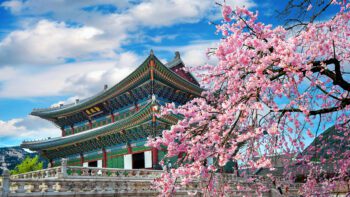
South Korea Travel Insurance for Visitors

When planning a trip to South Korea, there are several important things to keep in mind. The country has extremely muggy summers, so pack lightweight clothes and sun protection for that season. For winter travel to South Korea, you'll want lots of layers to counter the freezing conditions. Prepare an itinerary, whether you're exploring the urban sights in Seoul or the natural beauty of Jeju Island. Get ready to eat Korean food that's sweet, savory, or spicy. And don't forget about travel insurance. Depending on the level of coverage you select, travel insurance for South Korea can protect you in case of an accident or illness, if your trip is canceled or delayed, or if you engage in extreme sports.
Do I Need Travel Insurance for South Korea?
Visitors aren't required to purchase travel insurance to go to South Korea. Yet while South Korea is a safe country to visit, signing up for a policy is a good idea for both your financial security and peace of mind.
For example, when you go out to eat tteokbokki or jajangmyeon, a miscommunication about a food allergy could send you straight to the hospital. You might slip and twist your ankle while exploring Seoraksan National Park. A motorcyclist veering onto a sidewalk could knock you over.
You'll have access to high-quality doctors and up-to-date treatments while visiting South Korea. But without insurance, this care can be very expensive. Travel medical insurance will protect you from having to pay for hospital stays, surgery, and medication yourself. Some plans will also cover the costs of transporting you back to your home country following an accident or other emergency.
For your trip to South Korea, you may also want a travel policy that covers extreme sports. Many common sports can fall under the "extreme" rubric. If you’ll be hiking Mt. Hallasan or paragliding around Jeju Island, this is the kind of policy you need.
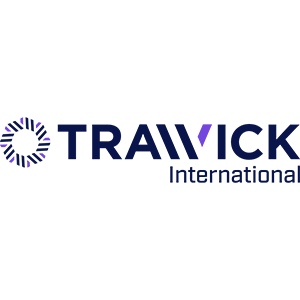
SafeTreker Adventure Sports Coverage
- Valid for US residents
- Coverage for over 450+ sports and activities
- Emergency medical coverage
Another option for your South Korean travels is trip cancellation coverage. Depending on the level of coverage in your policy — some policies allow you to cancel for any reason — this will absorb some or even all of the costs if you have to cancel your trip. Travel delay coverage offers similar protection if your trip is interrupted by something like a flight delay.
Safe Travels Voyager
- Comprehensive coverage for trip cancellation, trip interruption, emergency medical and post-departure travel coverage
- Cancel for Any Reason available
- Up to $250,000 in emergency medical coverage

Seven Corners Trip Protection Insurance
- Comprehensive trip protection for U.S. residents traveling abroad.
- Optional rental car collision coverage available.
- Optional Cancel for Any Reason coverage available (if eligible).
Best Travel Insurance for South Korea
Before you make a decision about what kind of policy to buy, think about your upcoming trip. Might you have to postpone your travels to visit an ailing family member? Do you want to go skiing where the 2018 Olympics took place? Or do you want the security of knowing you won't have to pay unexpected healthcare costs all on your own?
Our licensed brokers understand all the ins and outs of South Korea travel insurance. Whether you'd like a policy to cover unexpected medical expenses, trip cancellation and delays, or your participation in "extreme" sports, we will help you find the best policy at a price you can afford.
How Much Does Travel Insurance Typically Cost?
The costs for a South Korea travel insurance policy can vary. Factors in calculating the price include the length of the trip, the age of the person or people being covered, and the type of policy you desire. For example, a travel policy that allows you to cancel your trip for any reason offers a high degree of flexibility but usually comes with a higher price tag.
How Do I Get Travel Insurance for Korea?
Many companies that offer International Health Insurance also offer Travel Insurance. We put together a list of the Top 10 Travel Insurance Companies . Our agents are also happy to walk you through the different options, from basic travel medical insurance, trip cancellation, medical evacuation and more.
Looking for International Travel & Medical Insurance?
Request a free quote and one of our specialists will contact you.
Medical Preparation for Travel to South Korea
Below you will find three popular travel medical plans that provide coverage in South Korea. The GeoBlue Voyager plan is only for U.S. citizens traveling outside the U.S. to South Korea. The WorldTrips Atlas and IMG Patriot Platinum plans are available to U.S. and non-U.S. citizens traveling to South Korea. If you are interested in learning more about a particular plan, review its brochure or click to get a free quote and one of our specialists will contact you.

GeoBlue Voyager Plan
- For U.S. citizens up to age 95
- Includes pregnancy coverage, baggage loss, trip interruption & more
- 24/7/365 service and assistance

- Emergency medical, evacuation, repatriation benefits
- Choose between the basic and more extensive coverage
- Meets Schengen visa insurance requirements
- 24/7 worldwide travel and emergency medical assistance

Patriot Platinum Travel Insurance
- Maximum limits up to $8,000,000
- IMG pays 100% of medical expenses in-network
- Evacuation due to Natural Disasters & Political Unrest
What Vaccinations Do I Need for Travel to South Korea?
South Korea does not require visitors to receive specific vaccinations before traveling there. However, health authorities like the U.S. Centers for Disease Control recommend that you be up-to-date on regular vaccinations, including chickenpox, polio, flu, COVID-19, and hepatitis A and B.
How to Bring Medications to South Korea
If you regularly take any prescription or over-the-counter medicines, you'll want to travel with your medication. Fortunately, South Korea’s rules for foreigners include a process for you to do this legally.
South Korea has strict regulations regarding narcotics, a category that includes common medications like Adderall (an amphetamine). However, under South Korea’s travel requirements, you don't need to worry about carrying a narcotic medication if you're simply transiting through the country. If you want to stay in South Korea and take your medicine, the country's Ministry of Food and Drug Safety (MFDS) can approve you importing a personal supply of medication.
To get permission to bring a narcotic medication into South Korea:
- Follow the steps on how to obtain a "Self Treatment Narcotics Bring in Permit" with the Ministry of Food and Drug Safety . There is an English version of the application, so it's not necessary to complete it in Korean.
- If you're not sure if your medication requires approval, you can send an email to [email protected] or call the ministry at +82-43-719-2813.
- You need to submit your application to the MFDS at least 10 business days before your trip.
For medications that are not narcotics, you don’t need to ask the MFDS for permission to travel with them. However, you should bring your original prescriptions and a note from your doctor explaining your conditions and the medications you take. You can travel with a three-month supply, up to six bottles of medication.
Related: Health Insurance in South Korea for Foreigners
Can I Bring Medical Marijuana to South Korea?
In 2020, South Korea legalized the medical use of marijuana. Yet even with a doctor's prescription from your home country, you cannot bring medical marijuana into South Korea. It's also illegal to carry medicinal or over-the-counter CBD products into South Korea. Avoid trouble and don't pack any items with CBD as an ingredient! If you travel with CBD products, you could be detained or even arrested.
Frequently Asked Questions about Travel to South Korea and Its Healthcare System
What is the healthcare system for foreign visitors in south korea.
Foreign visitors can go to the same healthcare facilities as South Koreans. It’s common for residents to seek care at a hospital instead of first visiting a primary care physician, even in non-urgent situations such as a cold or sprained ankle because of the way South Korea’s Healthcare System is set up. You can do the same, but remember you’ll be expected to pay for your care!
What Should I Do During a Medical Emergency in South Korea?
Call 119 for an ambulance. Don’t worry if you don’t speak Korean — assistance in English is available.
Can Foreigners Go to the Hospital in South Korea?
Travelers may visit any hospital in South Korea . Foreign visitors can also head directly to a hospital for treatment, as long as they can move on their own.
Can I Make an Appointment at Hospitals in South Korea?
Many healthcare facilities allow patients to schedule appointments online. If you have a travel policy, and you can spare a moment before seeking care, check with your provider to see if there is a nearby hospital or urgent care center that accepts your insurance.
Do South Korean Doctors and Nurses Speak English?
Healthcare providers in urban areas are likely to speak some English. Providers in rural areas may not be used to speaking English, so bring a dictionary or translator if you have to seek care.
Is There a Difference Between Rural and Urban Healthcare in South Korea?
In rural areas, you will find fewer options for care. 90% of South Korean doctors work in cities.
How Should I Behave in a South Korean Hospital?
If you have to be admitted to the hospital, try to have a friend or family member accompany you. Hospitalized South Koreans usually have a “bohoja” (guardian) to handle tasks such as getting food and changing bedding. Also keep in mind that large hospitals and other medical settings may require you to wear a mask. If you don’t obey this rule, you could be fined.
Is Healthcare Free in South Korea for Foreigners?
South Korea has a public healthcare system for citizens and residents. However, tourists and short-term visitors will not receive free healthcare in South Korea. If you need to go to the hospital or see a doctor, you’ll be expected to pay for your treatment at the time of service — and it can be quite expensive.
A travel medical policy will cover some or all of your expenses if you need care during your stay. Sign up for a policy before your trip to make sure you’re financially protected in case of an unexpected illness or injury. Our licensed brokers would be delighted to help you find an affordable policy with comprehensive coverage.
How Can I Stay Safe in South Korea?
For your own safety and security in South Korea, check travel alerts before and during your stay. The following pages will let you know about domestic conflicts, disease outbreaks, and other developing situations.
- US Department of State page on South Korea
- Australian government Smartraveller page on South Korea
- Gov.UK Foreign Travel Advice section on South Korea
- Government of Canada travel advisory page for South Korea
- Singapore Ministry of Foreign Affairs page on South Korea
You can also download South Korea’s own “Emergency Ready” app to your Apple or Android smartphone. During emergency situations, this app provides updates in Korean, English, and Chinese.
How Secure is South Korea?
Monitoring the sites mentioned above is more of a precaution than a necessity. South Korea is a politically stable country, and its crime rates are very low. However, the country is still technically at war with North Korea. Periodic missile launches from North Korea are one sign of this unresolved conflict.
South Korea has experienced an increasing number of earthquakes in recent years. Fortunately, most of these quakes have been small ones. If a quake strikes while you’re in South Korea, pay attention to instructions from local authorities.
South Korea has some protection from tsunamis, as Japan is the first target for tsunamis that form in the Pacific Ocean. But local quakes may generate a tsunami that can strike the Korean peninsula. Be prepared to head to higher ground after an earthquake. As roads may be damaged or crowded with cars, you will likely have to walk.
What Should I Be Careful of in South Korea?
South Korea, which has some of the lowest crime rates in the world, is a very safe country for tourists to visit. But no matter how secure a country is, there are ways to further protect yourself. Pay attention to the following travel tips and your safety in South Korea will be even more assured.
1. Don’t Relax Too Much
Is South Korea safe? Yes, it’s one of the safest countries in the world! However, prevention is a key part of safety, so don’t let your guard down completely when in public. Keep an eye on your belongings in crowded areas—pickpockets and other thieves can target tourists. Don’t leave your drinks unattended in a bar or nightclub, as drink spiking can happen anywhere.
2. Prepare for the Weather
The Korean climate is one of extremes. It can be sweltering and muggy in the summer and freezing cold in the winter. Severe typhoons can hit in August and September. Packing appropriately will help prevent conditions like heat exhaustion or frostbite.
3. Pay Attention to Air Quality
In the spring, yellow dust (“HwangSa”) pollution from China and Mongolia can wash over South Korea. You’ll be safer staying indoors if yellow dust arrives during your trip. If you can’t avoid going outside, wear a protective mask.
4. Steer Clear of Demonstrations
Public demonstrations are a common sight in South Korea. But if you see one going on, exercise caution. These demonstrations can sometimes become violent.
5. Watch Out for Cars
Jaywalking is against the law in South Korea. If you’re spotted in the act, you may receive a ticket. Yet even if you’re obeying traffic laws and have the right of way, be cautious: South Korea is not the safest country for pedestrians — another reason why medical coverage is a very good idea.
6. Follow Instructions in the DMZ
Tourists are allowed to visit the demilitarized zone, a strip of land that serves as a buffer between South and North Korea. But if you opt for a trip to the DMZ, be prepared to follow instructions from your tour guides and local authorities. Tensions still run high in this area.
7. Don’t Be Surprised by Civil Exercises
Given the country’s tensions with North Korea, South Korea’s safety procedures include regular civil emergency exercises. During these exercises, you will hear sirens and notice that public transportation stops running. South Koreans may shelter in designated areas. Visitors from other countries do not have to participate in these exercises, but do your best not to interfere with them.
8. Stay Alert During Earthquakes
If an earthquake hits while you’re in South Korea, don’t panic. Instead, if you’re inside, cover your head and remain in place. If you’re outside, try to move to an open space away from buildings and power lines. Be prepared for aftershocks following the initial quake. Be ready to walk to higher ground if you’re on the coast and there’s a tsunami warning.
9. Pack Carefully
Before traveling to South Korea, make sure you’re not bringing anything that’s not permitted in the country. You need to apply for permission to bring in narcotic medications such as Adderall. Start this process at least ten business days ahead of your trip. And no matter how accessible CBD products are in your home country, you can’t take them into South Korea. Check your bags to ensure you haven’t inadvertently packed anything made with CBD oil.
Emergency Contact Information for South Korea
Emergency assistance numbers in south korea.
If you have a medical emergency in South Korea, dial 119 and request an ambulance. You don’t need to speak Korean as this line offers access to English-speaking doctors who can assist you.
To report a crime, including sexual assault, call 112 to reach the Korean National Police. If you don’t speak Korean, you’ll be provided with an interpreter.
Embassy Phone Numbers in South Korea
- U.S. Embassy in Seoul : 82 (0)2 397-4114
- Embassy of Canada in Seoul : 82 2 3783 6000
- British Embassy Seoul : 82 (0)2 3210 5500
- Ambassade de France à Séoul : 82 (2) 3149 4300
- Australian Embassy in the Republic of Korea, Seoul : 82 2 2003 0100
- New Zealand Embassy, Seoul : 82 (2) 37017700
Travel Safely in South Korea
Nothing here should make you worry about your upcoming trip to South Korea. Instead, the precautions and advice will serve to help you make the most of your trip. It’s always better to plan ahead instead of scrambling to figure out what to do in case of an emergency. Now that you’re more prepared, enjoy your Korean adventures!
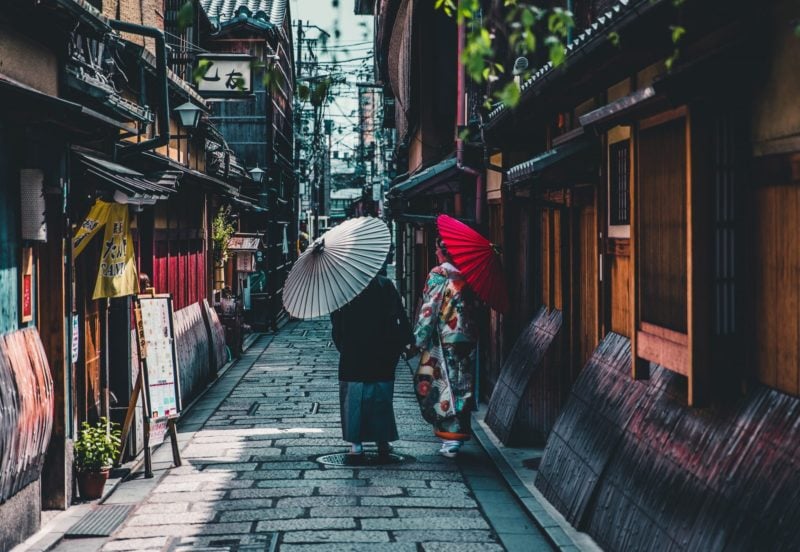
Health Insurance Plans in Asia

Health Insurance in South Korea
Get a fast, free, international insurance quote., global medical plans, specialty coverage, company info, customer service.
You are using an outdated browser. Upgrade your browser today or install Google Chrome Frame to better experience this site.
South Korea Traveler View
Travel health notices, vaccines and medicines, non-vaccine-preventable diseases, stay healthy and safe.
- Packing List
After Your Trip
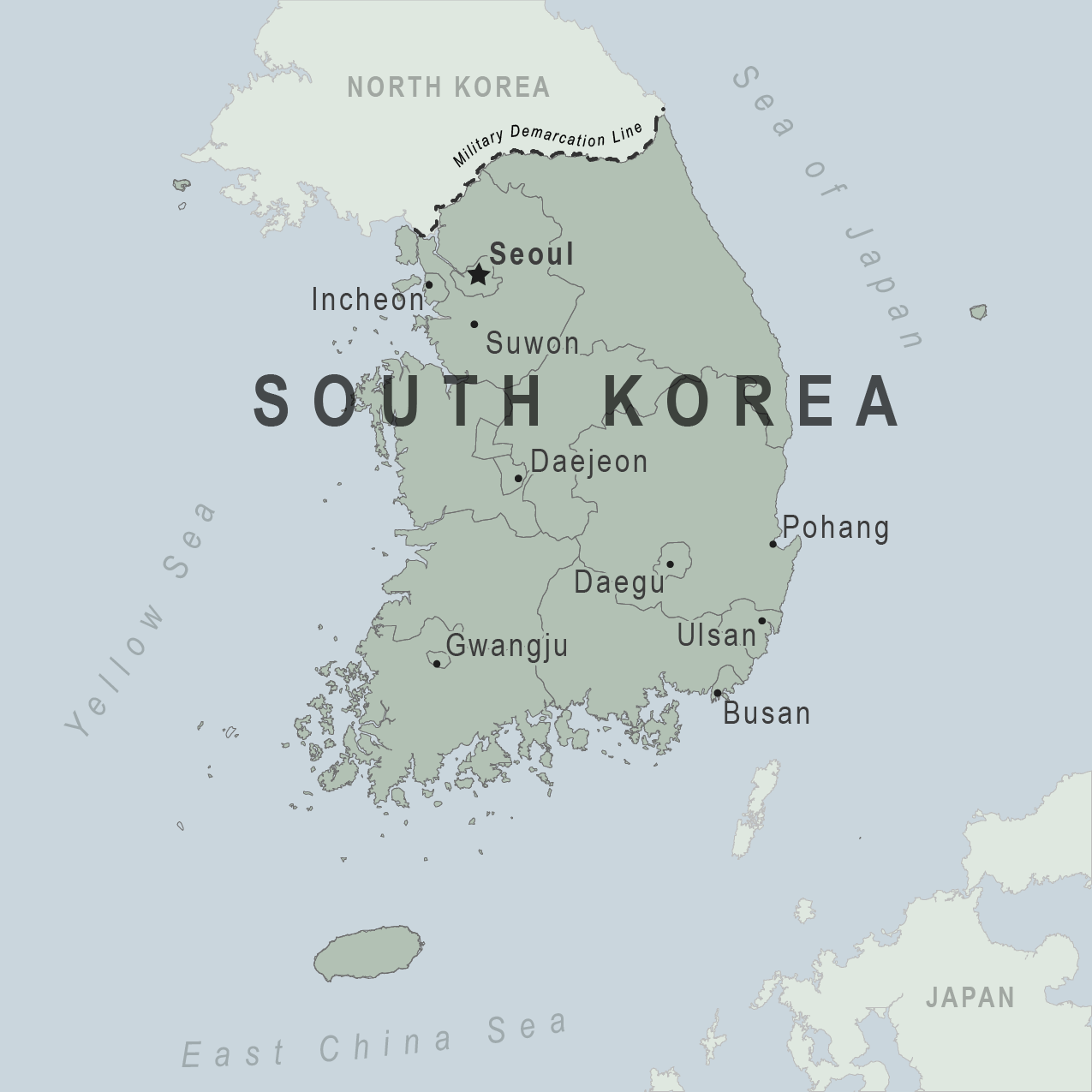
There are no notices currently in effect for South Korea.
⇧ Top
Check the vaccines and medicines list and visit your doctor at least a month before your trip to get vaccines or medicines you may need. If you or your doctor need help finding a location that provides certain vaccines or medicines, visit the Find a Clinic page.
Routine vaccines
Recommendations.
Make sure you are up-to-date on all routine vaccines before every trip. Some of these vaccines include
- Chickenpox (Varicella)
- Diphtheria-Tetanus-Pertussis
- Flu (influenza)
- Measles-Mumps-Rubella (MMR)
Immunization schedules
All eligible travelers should be up to date with their COVID-19 vaccines. Please see Your COVID-19 Vaccination for more information.
COVID-19 vaccine
Hepatitis A
Recommended for unvaccinated travelers one year old or older going to South Korea.
Infants 6 to 11 months old should also be vaccinated against Hepatitis A. The dose does not count toward the routine 2-dose series.
Travelers allergic to a vaccine component or who are younger than 6 months should receive a single dose of immune globulin, which provides effective protection for up to 2 months depending on dosage given.
Unvaccinated travelers who are over 40 years old, immunocompromised, or have chronic medical conditions planning to depart to a risk area in less than 2 weeks should get the initial dose of vaccine and at the same appointment receive immune globulin.
Hepatitis A - CDC Yellow Book
Dosing info - Hep A
Hepatitis B
Recommended for unvaccinated travelers younger than 60 years old traveling to South Korea. Unvaccinated travelers 60 years and older may get vaccinated before traveling to South Korea.
Hepatitis B - CDC Yellow Book
Dosing info - Hep B
Japanese Encephalitis
Recommended for travelers who
- Are moving to an area with Japanese encephalitis to live
- Spend long periods of time, such as a month or more, in areas with Japanese encephalitis
- Frequently travel to areas with Japanese encephalitis
Consider vaccination for travelers
- Spending less than a month in areas with Japanese encephalitis but will be doing activities that increase risk of infection, such as visiting rural areas, hiking or camping, or staying in places without air conditioning, screens, or bed nets
- Going to areas with Japanese encephalitis who are uncertain of their activities or how long they will be there
Not recommended for travelers planning short-term travel to urban areas or travel to areas with no clear Japanese encephalitis season.
Japanese encephalitis - CDC Yellow Book
Japanese Encephalitis Vaccine for US Children
CDC recommends that travelers going to certain areas of South Korea take prescription medicine to prevent malaria. Depending on the medicine you take, you will need to start taking this medicine multiple days before your trip, as well as during and after your trip. Talk to your doctor about which malaria medication you should take.
Find country-specific information about malaria.
Malaria - CDC Yellow Book
Considerations when choosing a drug for malaria prophylaxis (CDC Yellow Book)
Malaria information for South Korea.
Cases of measles are on the rise worldwide. Travelers are at risk of measles if they have not been fully vaccinated at least two weeks prior to departure, or have not had measles in the past, and travel internationally to areas where measles is spreading.
All international travelers should be fully vaccinated against measles with the measles-mumps-rubella (MMR) vaccine, including an early dose for infants 6–11 months, according to CDC’s measles vaccination recommendations for international travel .
Measles (Rubeola) - CDC Yellow Book
South Korea is free of dog rabies. However, rabies may still be present in wildlife species, particularly bats. CDC recommends rabies vaccination before travel only for people working directly with wildlife. These people may include veterinarians, animal handlers, field biologists, or laboratory workers working with specimens from mammalian species.
Rabies - CDC Yellow Book
Tick-borne Encephalitis
Avoid bug bites
Learn more about tick-borne encephalitis at your destination .
Tick-borne Encephalitis - CDC Yellow Book
Recommended for most travelers, especially those staying with friends or relatives or visiting smaller cities or rural areas.
Typhoid - CDC Yellow Book
Dosing info - Typhoid
Yellow Fever
Required if traveling from a country with risk of YF virus transmission and ≥1 year of age. 1
Yellow Fever - CDC Yellow Book
Avoid contaminated water
Leptospirosis
How most people get sick (most common modes of transmission)
- Touching urine or other body fluids from an animal infected with leptospirosis
- Swimming or wading in urine-contaminated fresh water, or contact with urine-contaminated mud
- Drinking water or eating food contaminated with animal urine
- Avoid contaminated water and soil
Clinical Guidance
Airborne & droplet, avian/bird flu.
- Being around, touching, or working with infected poultry, such as visiting poultry farms or live-animal markets
- Avoid domestic and wild poultry
- Breathing in air or accidentally eating food contaminated with the urine, droppings, or saliva of infected rodents
- Bite from an infected rodent
- Less commonly, being around someone sick with hantavirus (only occurs with Andes virus)
- Avoid rodents and areas where they live
- Avoid sick people
Tuberculosis (TB)
- Breathe in TB bacteria that is in the air from an infected and contagious person coughing, speaking, or singing.
Learn actions you can take to stay healthy and safe on your trip. Vaccines cannot protect you from many diseases in South Korea, so your behaviors are important.
Eat and drink safely
Food and water standards around the world vary based on the destination. Standards may also differ within a country and risk may change depending on activity type (e.g., hiking versus business trip). You can learn more about safe food and drink choices when traveling by accessing the resources below.
- Choose Safe Food and Drinks When Traveling
- Water Treatment Options When Hiking, Camping or Traveling
- Global Water, Sanitation and Hygiene | Healthy Water
- Avoid Contaminated Water During Travel
You can also visit the Department of State Country Information Pages for additional information about food and water safety.
Prevent bug bites
Although South Korea is an industrialized country, bug bites here can still spread diseases. Just as you would in the United States, try to avoid bug bites while spending time outside or in wooded areas.
What can I do to prevent bug bites?
- Cover exposed skin by wearing long-sleeved shirts, long pants, and hats.
- Use an appropriate insect repellent (see below).
- Consider using permethrin-treated clothing and gear if spending a lot of time outside. Do not use permethrin directly on skin.
What type of insect repellent should I use?
- FOR PROTECTION AGAINST TICKS AND MOSQUITOES: Use a repellent that contains 20% or more DEET for protection that lasts up to several hours.
- Picaridin (also known as KBR 3023, Bayrepel, and icaridin)
- Oil of lemon eucalyptus (OLE) or para-menthane-diol (PMD)
- 2-undecanone
- Always use insect repellent as directed.
What should I do if I am bitten by bugs?
- Avoid scratching bug bites, and apply hydrocortisone cream or calamine lotion to reduce the itching.
- Check your entire body for ticks after outdoor activity. Be sure to remove ticks properly.
What can I do to avoid bed bugs?
Although bed bugs do not carry disease, they are an annoyance. See our information page about avoiding bug bites for some easy tips to avoid them. For more information on bed bugs, see Bed Bugs .
For more detailed information on avoiding bug bites, see Avoid Bug Bites .
Stay safe outdoors
If your travel plans in South Korea include outdoor activities, take these steps to stay safe and healthy during your trip:
- Stay alert to changing weather conditions and adjust your plans if conditions become unsafe.
- Prepare for activities by wearing the right clothes and packing protective items, such as bug spray, sunscreen, and a basic first aid kit.
- Consider learning basic first aid and CPR before travel. Bring a travel health kit with items appropriate for your activities.
- If you are outside for many hours in the heat, eat salty snacks and drink water to stay hydrated and replace salt lost through sweating.
- Protect yourself from UV radiation : use sunscreen with an SPF of at least 15, wear protective clothing, and seek shade during the hottest time of day (10 a.m.–4 p.m.).
- Be especially careful during summer months and at high elevation. Because sunlight reflects off snow, sand, and water, sun exposure may be increased during activities like skiing, swimming, and sailing.
- Very cold temperatures can be dangerous. Dress in layers and cover heads, hands, and feet properly if you are visiting a cold location.
Stay safe around water
- Swim only in designated swimming areas. Obey lifeguards and warning flags on beaches.
- Do not dive into shallow water.
- Avoid swallowing water when swimming. Untreated water can carry germs that make you sick.
- Practice safe boating—follow all boating safety laws, do not drink alcohol if you are driving a boat, and always wear a life jacket.
Keep away from animals
Most animals avoid people, but they may attack if they feel threatened, are protecting their young or territory, or if they are injured or ill. Animal bites and scratches can lead to serious diseases such as rabies.
Follow these tips to protect yourself:
- Do not touch or feed any animals you do not know.
- Do not allow animals to lick open wounds, and do not get animal saliva in your eyes or mouth.
- Avoid rodents and their urine and feces.
- Traveling pets should be supervised closely and not allowed to come in contact with local animals.
- If you wake in a room with a bat, seek medical care immediately. Bat bites may be hard to see.
All animals can pose a threat, but be extra careful around dogs, bats, monkeys, sea animals such as jellyfish, and snakes. If you are bitten or scratched by an animal, immediately:
- Wash the wound with soap and clean water.
- Go to a doctor right away.
- Tell your doctor about your injury when you get back to the United States.
Reduce your exposure to germs
Follow these tips to avoid getting sick or spreading illness to others while traveling:
- Wash your hands often, especially before eating.
- If soap and water aren’t available, clean hands with hand sanitizer (containing at least 60% alcohol).
- Don’t touch your eyes, nose, or mouth. If you need to touch your face, make sure your hands are clean.
- Cover your mouth and nose with a tissue or your sleeve (not your hands) when coughing or sneezing.
- Try to avoid contact with people who are sick.
- If you are sick, stay home or in your hotel room, unless you need medical care.
Avoid sharing body fluids
Diseases can be spread through body fluids, such as saliva, blood, vomit, and semen.
Protect yourself:
- Use latex condoms correctly.
- Do not inject drugs.
- Limit alcohol consumption. People take more risks when intoxicated.
- Do not share needles or any devices that can break the skin. That includes needles for tattoos, piercings, and acupuncture.
- If you receive medical or dental care, make sure the equipment is disinfected or sanitized.
Know how to get medical care while traveling
Plan for how you will get health care during your trip, should the need arise:
- Carry a list of local doctors and hospitals at your destination.
- Review your health insurance plan to determine what medical services it would cover during your trip. Consider purchasing travel health and medical evacuation insurance for things your regular insurance will not cover.
- Carry a card that identifies, in the local language, your blood type, chronic conditions or serious allergies, and the generic names of any medicines you take.
- Bring copies of your prescriptions for medicine and for eye glasses and contact lenses.
- Some prescription drugs may be illegal in other countries. Call South Korea’s embassy to verify that all of your prescription(s) are legal to bring with you.
- Bring all the medicines (including over-the-counter medicines) you think you might need during your trip, including extra in case of travel delays. Ask your doctor to help you get prescriptions filled early if you need to.
Many foreign hospitals and clinics are accredited by the Joint Commission International. A list of accredited facilities is available at their website ( www.jointcommissioninternational.org ).
Malaria is a risk in some parts of South Korea. If you are going to a risk area, fill your malaria prescription before you leave, and take enough with you for the entire length of your trip. Follow your doctor’s instructions for taking the pills; some need to be started before you leave.
Select safe transportation
Motor vehicle crashes are the #1 killer of healthy US citizens in foreign countries.
Be smart when you are traveling on foot.
- Use sidewalks and marked crosswalks.
- Pay attention to the traffic around you, especially in crowded areas.
- Remember, people on foot do not always have the right of way in other countries.
Riding/Driving
Choose a safe vehicle.
- Choose official taxis or public transportation, such as trains and buses.
- Make sure there are seatbelts.
- Avoid overcrowded, overloaded, top-heavy buses and minivans.
- Avoid riding on motorcycles or motorbikes, especially motorbike taxis. (Many crashes are caused by inexperienced motorbike drivers.)
- Choose newer vehicles—they may have more safety features, such as airbags, and be more reliable.
- Choose larger vehicles, which may provide more protection in crashes.
Think about the driver.
- Do not drive after drinking alcohol or ride with someone who has been drinking.
- Consider hiring a licensed, trained driver familiar with the area.
- Arrange payment before departing.
Follow basic safety tips.
- Wear a seatbelt at all times.
- Sit in the back seat of cars and taxis.
- When on motorbikes or bicycles, always wear a helmet. (Bring a helmet from home, if needed.)
- Do not use a cell phone or text while driving (illegal in many countries).
- Travel during daylight hours only, especially in rural areas.
- If you choose to drive a vehicle in South Korea, learn the local traffic laws and have the proper paperwork.
- Get any driving permits and insurance you may need. Get an International Driving Permit (IDP). Carry the IDP and a US-issued driver's license at all times.
- Check with your auto insurance policy's international coverage, and get more coverage if needed. Make sure you have liability insurance.
- Avoid using local, unscheduled aircraft.
- If possible, fly on larger planes (more than 30 seats); larger airplanes are more likely to have regular safety inspections.
- Try to schedule flights during daylight hours and in good weather.
Helpful Resources
Road Safety Overseas (Information from the US Department of State): Includes tips on driving in other countries, International Driving Permits, auto insurance, and other resources.
The Association for International Road Travel has country-specific Road Travel Reports available for most countries for a minimal fee.
Maintain personal security
Use the same common sense traveling overseas that you would at home, and always stay alert and aware of your surroundings.
Before you leave
- Research your destination(s), including local laws, customs, and culture.
- Monitor travel advisories and alerts and read travel tips from the US Department of State.
- Enroll in the Smart Traveler Enrollment Program (STEP) .
- Leave a copy of your itinerary, contact information, credit cards, and passport with someone at home.
- Pack as light as possible, and leave at home any item you could not replace.
While at your destination(s)
- Carry contact information for the nearest US embassy or consulate .
- Carry a photocopy of your passport and entry stamp; leave the actual passport securely in your hotel.
- Follow all local laws and social customs.
- Do not wear expensive clothing or jewelry.
- Always keep hotel doors locked, and store valuables in secure areas.
- If possible, choose hotel rooms between the 2nd and 6th floors.
Healthy Travel Packing List
Use the Healthy Travel Packing List for South Korea for a list of health-related items to consider packing for your trip. Talk to your doctor about which items are most important for you.
Why does CDC recommend packing these health-related items?
It’s best to be prepared to prevent and treat common illnesses and injuries. Some supplies and medicines may be difficult to find at your destination, may have different names, or may have different ingredients than what you normally use.
If you are not feeling well after your trip, you may need to see a doctor. If you need help finding a travel medicine specialist, see Find a Clinic . Be sure to tell your doctor about your travel, including where you went and what you did on your trip. Also tell your doctor if you were bitten or scratched by an animal while traveling.
If your doctor prescribed antimalarial medicine for your trip, keep taking the rest of your pills after you return home. If you stop taking your medicine too soon, you could still get sick.
Malaria is always a serious disease and may be a deadly illness. If you become ill with a fever either while traveling in a malaria-risk area or after you return home (for up to 1 year), you should seek immediate medical attention and should tell the doctor about your travel history.
For more information on what to do if you are sick after your trip, see Getting Sick after Travel .
Map Disclaimer - The boundaries and names shown and the designations used on maps do not imply the expression of any opinion whatsoever on the part of the Centers for Disease Control and Prevention concerning the legal status of any country, territory, city or area or of its authorities, or concerning the delimitation of its frontiers or boundaries. Approximate border lines for which there may not yet be full agreement are generally marked.
Other Destinations
If you need help finding travel information:
Message & data rates may apply. CDC Privacy Policy
File Formats Help:
- Adobe PDF file
- Microsoft PowerPoint file
- Microsoft Word file
- Microsoft Excel file
- Audio/Video file
- Apple Quicktime file
- RealPlayer file
- Zip Archive file
Exit Notification / Disclaimer Policy
- The Centers for Disease Control and Prevention (CDC) cannot attest to the accuracy of a non-federal website.
- Linking to a non-federal website does not constitute an endorsement by CDC or any of its employees of the sponsors or the information and products presented on the website.
- You will be subject to the destination website's privacy policy when you follow the link.
- CDC is not responsible for Section 508 compliance (accessibility) on other federal or private website.
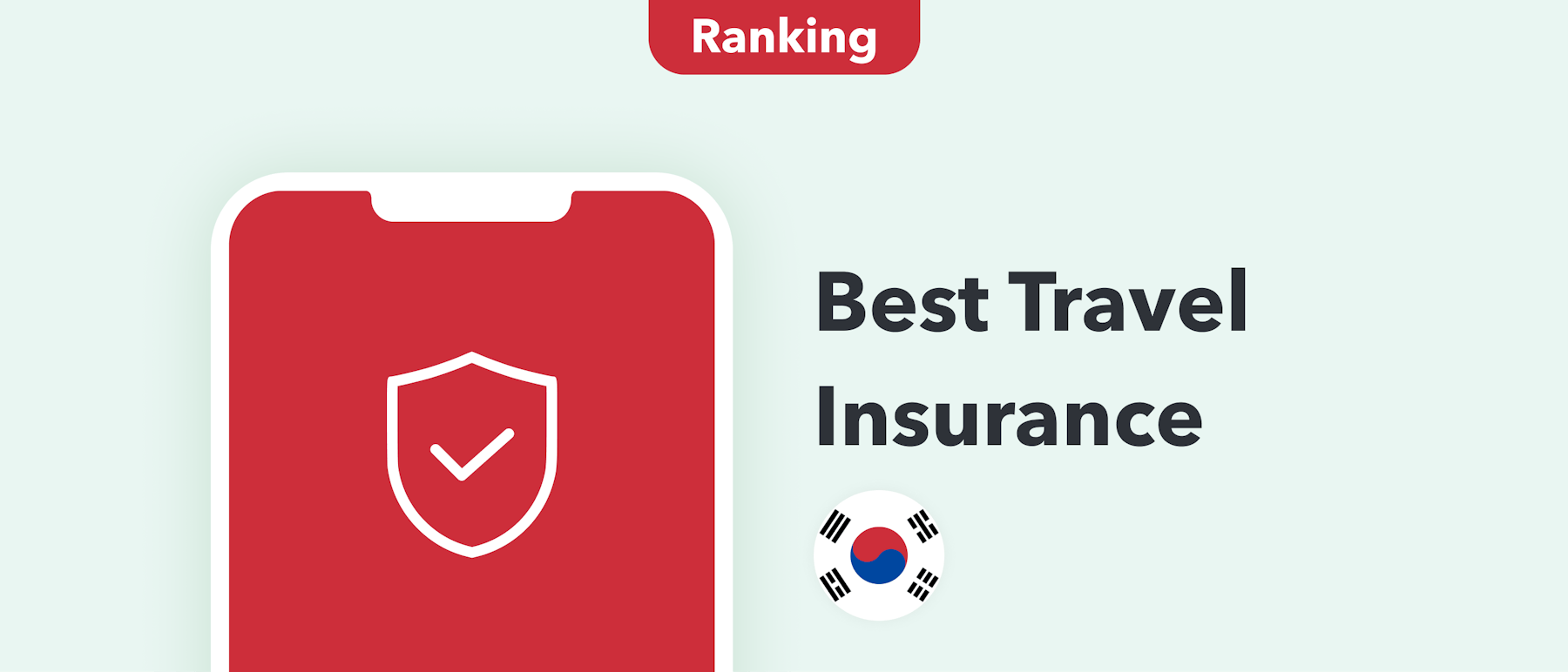
Top Travel Insurances For South Korea You Should Know in 2024

Monito's Managing Editor, Byron has spent several years writing extensively about financial- and migration-related topics.
Links on this page, including products and brands featured on ‘Sponsored’ content, may earn us an affiliate commission. This does not affect the opinions and recommendations of our editors.
Although a small East Asian nation, South Korea has an outsized influence as a desination for tourists and expats. It's famous for its unique culture (including K-pop, Korean dramas, and the traditional tea ceremony) as well as its delicious food and safe cities. Although travelling to South Korea can be an accessible holiday destination for many people, out-the-pocket healthcare costs in the country tend to be expensive, so it's a very good idea to arrive there with travel insurance under your belt.
Luckily, online global insurances (known as 'insurtechs') specialize in cost-savvy travel insurance to South Korea and other countries worldwide. Our list below explores the four services we believe provide the best deals for young travellers, adventurers, everyday holidaymakers looking for comprehensive but affordable coverage, and longer-term expats.
South Korea Insurance Profile
Here are a few of the many factors influencing the scope and cost of travel insurances for South Korea:
Best Travel Insurances for South Korea
- 01. Do I need travel insurance for South Korea? scroll down
- 02. Best medical coverage: VisitorsCoverage scroll down
- 03. Best trip insurance: Insured Nomads scroll down
- 04. Best mix for youth and digitial nomads: SafetyWing scroll down
- 05. FAQ about travel insurance to South Korea scroll down
Heading to South Korea soon? Don't forget to check the following list before you travel:
- 💳 Eager to dodge high FX fees? See our picks for the best travel cards in 2024.
- 🛂 Need a visa? Let iVisa take care of it for you.
- ✈ Looking for flights? Compare on Skyscanner !
- 💬 Want to learn the local language? Babbel and italki are two excellent apps to think about.
- 💻 Want a VPN? ExpressVPN is the market leader for anonymous and secure browsing.
Is Travel Insurance Mandatory in South Korea?
No, there's currently no legal requirement to take out travel insurance for travel to or through South Korea.
However, regardless of whether or not it's legally required, it's always a good idea to take our health insurance before you travel — whether to Korea or anywhere else. For what's usually an affordable cost , taking out travel insurance will mitigate most or all of the risk of financial damage if you run into any unexpected troubles during your trip abroad. Take a look at the top five reasons to get travel insurance to learn more.
With that said, here are the top three travel insurances for South Korea:
VisitorsCoverage: Best Medical Coverage
Among the internet's best-known insurance platforms, VisitorsCoverage is a pioneering Silicon Valley insurtech company that offers comprehensive medical coverage for travellers going abroad to South Korea, no matter whether you're planning to follow hiking trails through the surreal Bukhansan National Park or soak in the history at Gyeongbokgung Palace.
VisitorsCoverage lets you choose between various plans tailored to meet the specific needs of your trip to South Korea, including coverage for medical emergencies, trip cancellations, and travel disruptions. With its easy online purchase process and 24/7 live chat support, VisitorsCoverage is a reliable and convenient option if you want good value and peace of mind while travelling abroad.

- Coverage 9.0
- Quality of Service 9.0
- Pricing 7.6
- Credibility 9.5
VisitorsCoverage offers a large variety of policies, and depending on your needs and preferences, you'll need to compare and explore their full catalogue of plans for yourself. However, we've chosen a few highlights for their travel insurance for South Korea:
- Policy Names: Varies
- Medical Coverage: Very good. Includes coverage for doctor and hospital visits, pre-existing conditions, repatriation, mental health-related conditions, and many others.
- Trip Coverage: Excellent - but only available for US residents.
- Customer Support: FAQ, live chat and phone support
- Pricing Range: USD 25 to USD 150 /traveller /month
- Insurance Underwriter: Lloyd's, Petersen, and others
- Best For: Value for money and overall medical coverage
Insured Nomads: Best Trip Coverage
Insured Nomads is another very good travel insurance option for South Korea, especially if you're adventurous or frequently on the go and are looking for solid trip insurance with some coverage for medical incidents too. With Insured Nomads, you can choose the level of protection that best suits your needs and enjoy a wide range of benefits, including 24/7 assistance, coverage for risky activities and adventure sports, and the ability to add or remove coverage as needed. In addition, Insured Nomads has a reputation for providing fast and efficient claims service, making it an excellent choice if you want peace of mind while exploring the world.

- Coverage 7.8
- Quality of Service 8.5
- Pricing 7.4
- Credibility 8.8
Insured Nomads offers three travel insurance policies depending on your needs and preferences. We go through them below:
- Policy Names: World Explorer, World Explorer Multi, World Explorer Guardian
- Medical Coverage: Good. Includes coverage for doctor and hospital visits, pre-existing conditions, repatriation, and many others.
- Trip Coverage: Good. Includes coverage for trip cancellation and interruption, lost or stolen luggage (with limits), adventure and sports activities, and many others.
- Customer Support: FAQ, live chat, phone support
- Pricing Range: USD 80 to USD 420 /traveller /month
- Insurance Underwriter: David Shield Insurance Company Ltd.
- Best For: Adventure seekers wanting comprehensive trip insurance
SafetyWing: Best Combination For Youth
SafetyWing is a good insurance option for younger travellers or digital nomads in South Korea because it offers flexible but comprehensive coverage at a famously affordable price. With SafetyWing, you can enjoy peace of mind knowing you're covered for unexpected medical expenses, trip cancellations, lost or stolen luggage, and more. In addition, SafetyWing's user-friendly website lets you manage your policy, file a claim, and access 24/7 assistance from anywhere in the world, and, unlike VisitorsCoverage, you can even purchase a policy retroactively (e.g. during a holiday)!
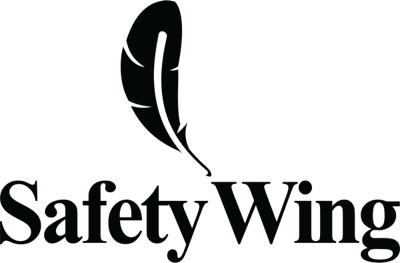
- Coverage 7.0
- Quality of Service 8.0
- Pricing 6.3
- Credibility 7.3
SafetyWing offers two travel insurance policies depending on your needs and preferences, which we've highlighted below:
- Policy Names: Nomad Insurance, Remote Health
- Medical Coverage: Decent. Includes coverage for doctor and hospital visits, repatriation, and many others.
- Trip Coverage: Decent. Includes attractive coverage for lost or stolen belongings, adventure and sports activities, transport cancellation, and many others.
- Pricing Range: USD 45 to USD 160 /traveller /month
- Insurance Underwriter: Tokyo Marine HCC
- Best For: Digital nomads, youth, long-term travellers
How Do They Compare?
Interested to see how VisitorsCoverage, SafetyWing, and Insured Nomads compare as travel insurances to South Korea? Take a look at the side-by-side chart below:
Data correct as of 4/1/2024
FAQ About Travel Insurance to Korea
Travel insurance typically covers trip cancellation, trip interruption, lost or stolen luggage, travel delay, and emergency evacuation. Some travel insurance packages also cover medical-related incidents too. However, remember that the exact coverage depends on the insurance policy.
No, you'll not be required to take out travel insurance for South Korea. However, we strongly encourage you to do so anyway, because the cost of healthcare in South Korea can be high, and taking out travel insurance will mitigate some or all of the risk of covering those costs yourself if you need medical attention during your stay.
Yes, medical travel insurance is almost always worth it, and we recommend taking out travel insurance whenever visiting a foreign country. Taking out travel insurance will mitigate some or all of the risk of covering those costs yourself in case you need medical attention during your stay. In general, we recommend VisitorsCoverage to travellers worldwide because it offers excellent value for money and well-rounded travel and medical benefits in its large catalogue of plans.
Health insurance doesn't cover normal holiday expenses, such as coverage for missed flights and hotels, but in case you run into medical trouble while abroad, it may cover some or all of your doctor or hospital expenses while overseas. However, not all health insurance providers and plans offer coverage to customers while abroad, and that's why it's generally best to take out travel insurance whenever you travel.
Although there's overlap, health and travel insurance are not exactly the same. Health insurance covers some or all of the cost of medical expenses (e.g. emergency treatment, doctor's visits, etc.) while travel insurance covers non-medical costs that are commonly associated with travelling (e.g. coverage for missed flights, stolen or lost personal belongings, etc.).
The cost of travel insurance depends on several factors, such as the length of the trip, the destination, the age of the traveller, and the level of coverage desired. On average, travel insurance can cost anywhere between 3% and 10% of the total cost of the trip.
A single-trip travel insurance policy covers a specific trip, while an annual one covers multiple trips taken within a one-year period. An annual policy may be more cost-effective for frequent travellers.
Yes, you can sometimes purchase travel insurance after starting your trip, but it is best to buy it before the trip begins to ensure maximum coverage. If you do need to buy insurance after you've started your trip, we recommend VisitorsCoverage , which offers a wide catalogue of online trip and medical insurance policies, most of which can be booked with immediate effect. Check out our guide to buying travel insurance late to learn more.
Yes, you can most certainly purchase travel insurance for a trip that has already been booked, although we recommend purchasing insurance as soon as possible aftwerwards to ensure all coverage is in place before your journey begins. Check out our guide to buying travel insurance late to learn more.
See Our Other Travel Insurance Guides
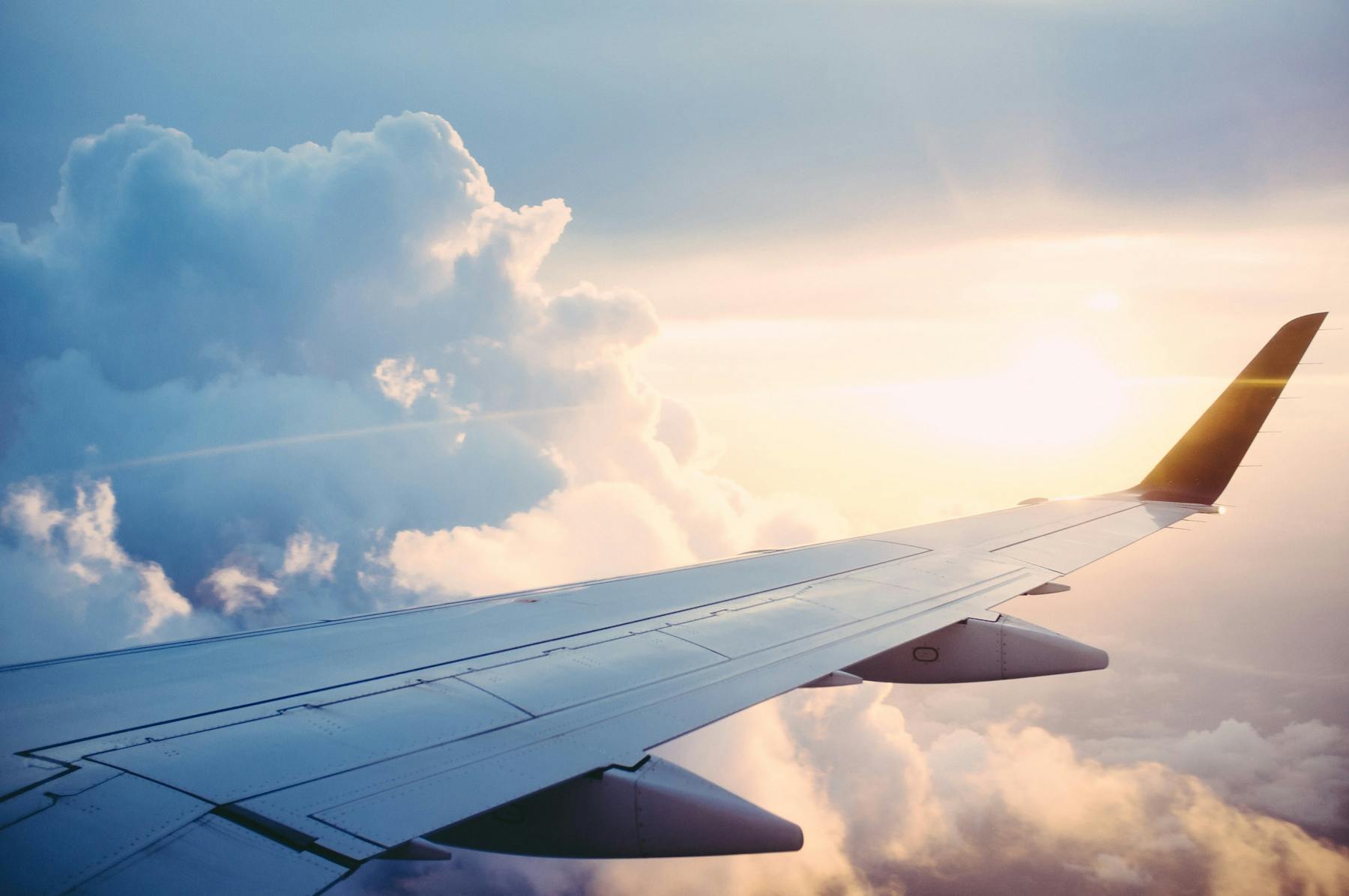
Looking for Travel Insurance to Another Country?
See our recommendations for travel insurance to other countries worldwide:
Why Trust Monito?
You’re probably all too familiar with the often outrageous cost of sending money abroad. After facing this frustration themselves back in 2013, co-founders François, Laurent, and Pascal launched a real-time comparison engine to compare the best money transfer services across the globe. Today, Monito’s award-winning comparisons, reviews, and guides are trusted by around 8 million people each year and our recommendations are backed by millions of pricing data points and dozens of expert tests — all allowing you to make the savviest decisions with confidence.
Monito is trusted by 15+ million users across the globe.
Monito's experts spend hours researching and testing services so that you don't have to.
Our recommendations are always unbiased and independent.
The Straits Times
- International
- Print Edition
- news with benefits
- SPH Rewards
- STClassifieds
- Berita Harian
- Hardwarezone
- Shin Min Daily News
- SRX Property
- Tamil Murasu
- The Business Times
- The New Paper
- Lianhe Zaobao
- Advertise with us
Vaccinated travel lane to South Korea: 10 things you need to know
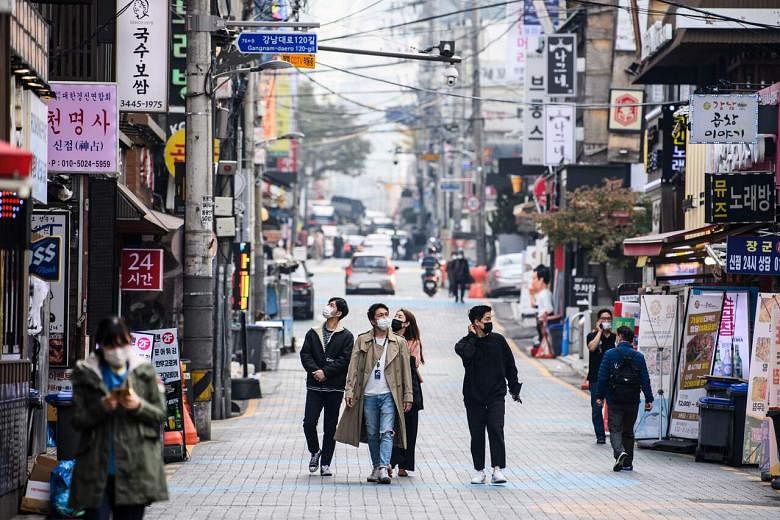
Masks? Checked. Hand sanitizer? Checked. Vaccination certificate? Checked.
Singaporeans yearning to travel to South Korea on the Vaccinated Travel Lane (VTL) can do so from Nov 15 when the bilateral agreement goes into effect.
Under the arrangement, those fully vaccinated can travel to either country without having to quarantine and will enjoy the same privileges granted to fully vaccinated citizens.
Travellers must be prepared to take at least four Covid-19 polymerase chain reaction (PCR) tests before flying out, in Korea, and when they land back in Singapore. The tests must be undertaken at a clinic or a registered provider and not self administered.
Here's a Q&A for those planning to visit the land of kimchi and K-pop, including advice from the South Korean embassy in Singapore, the Seoul Metropolitan government, as well as Singaporeans residing in South Korea.
1. Who is eligible to fly under the VTL to South Korea?
To qualify for VTL, you must be fully vaccinated against Covid-19 with any vaccine in the World Health Organisation emergency-use list. You must have stayed in Singapore for the past 14 days, and your vaccination certificate (in English) must be issued by either Singapore or South Korea.
Unvaccinated children below the age of six (as at the date of arrival) will also be exempted from quarantine if they are accompanied by an eligible adult traveller.
Unvaccinated travellers can also board VTL flights but will be subject to 10 days quarantine upon entry. However, those who have recovered from Covid-19, even if fully vaccinated, are not eligible for the VTL.
2. What must you do before flying?
Within 72 hours of departure, you must take a Covid-19 polymerase chain reaction (PCR) test and get a physical copy of a negative result.
You must also apply for visa-free entry via the Korea Electronic Travel Authorisation (K-ETA) website, at least 24 hours before your flight. It will cost 10,000 won (S$11.50) per person.
Travellers will also need to buy travel insurance with a minimum coverage of 30 million won for Covid-19 related medical expenses, and carry a hard copy of the insurance policy. You must also prepare an electronic vaccination certificate with a QR code. You can apply for it via Notarise.gov.sg, and print a hard copy as well.
You must also book a PCR test to be done when you land at Incheon Airport. Log on to Safe2gopass.com and carry a copy of the confirmed booking. The test will cost 174,000 won on weekdays and 180,000 won on weekends. You should also activate auto-roaming for your cellphone so you can make calls whenever necessary.
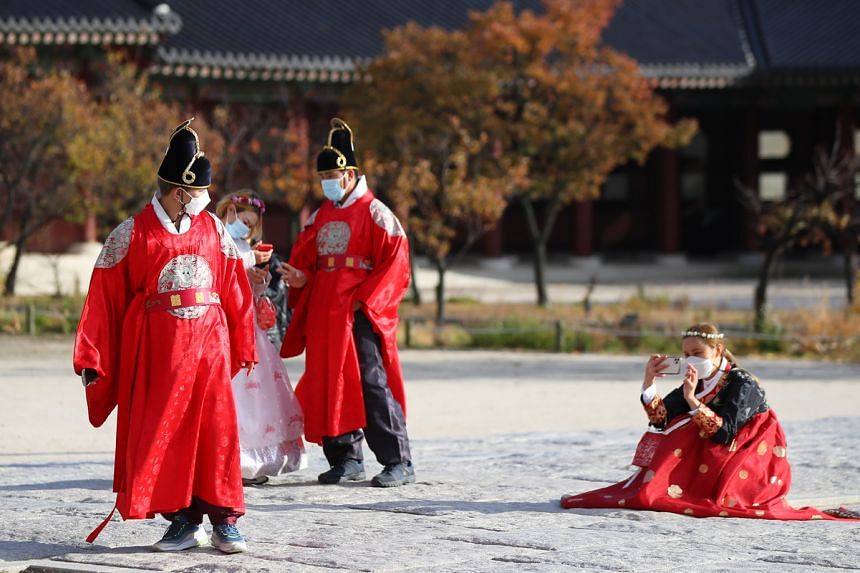
3. What should you expect when you check in at Changi Airport?
You will receive your air ticket as well as a VTL pass that comes with a lanyard which you are required to wear upon landing at Incheon Airport so immigration officials can recognise you immediately. You should also make sure you have all the paper documents indicated in question 2.
4. What should you expect when you land at Incheon Airport?
Upon landing, you will proceed to the quarantine section where you will submit your vaccine certificate, negative PCR test result and a health condition report (to be issued by your airline and filled on board the flight).
You will then move to the Immigration section to submit a travel record declaration form (also done during flight), get your passport stamped, and get your vaccination certificate QR code scanned for verification. After that, you will go to the Covid-19 test centre where you will submit your VTL pass with lanyard, take a PCR test, and install a quarantine app for self-monitoring of Covid-19 symptoms.
You will also receive a notice with instructions for business owners on how to check your vaccination status. Businesses use a COOV app to verify a traveller's vaccination credentials.
Finally, taking a taxi or personal transportation to your accommodation is recommended, although using public transportation is allowed. Stay at your accommodation until you receive a negative test result the next day, either via cellphone text message or e-mail.
After that, you will be able to roam freely. If you are staying more than eight days, you will be required to go for PCR testing again on the sixth or seventh day.
5. What happens if you test positive?
You will be moved to a designated medical facility for treatment and undergo epidemiological investigations. You will also be quarantined until you recover.
6. What are the main Covid-19 related rules to follow and are there any restrictions on business operations?
Mask wearing is mandatory wherever you go. If caught without a mask, you can be fined up to 100,000 won.
Restrictions on operating for all facilities have been lifted since Nov 1, except for a 12am curfew for night entertainment venues. However, high-risk facilities including clubs, karaoke rooms, gyms and saunas are only for fully-vaccinated people and you will need to show the notice you received at Incheon Airport to the staff. They will use the COOV app to scan your vaccination certificate QR code.
All facilities including malls, marts, restaurants, cafes and shops will need to record visitor entries for contact tracing purposes. You can do so by writing down your phone number on a visitor record sheet.
In the capital area (Seoul, the surrounding Gyeonggi province and Incheon), including in restaurants and cafes, people are allowed to gather in groups of up to 10. Vaccinated people are allowed to eat and drink in movie theatres too.
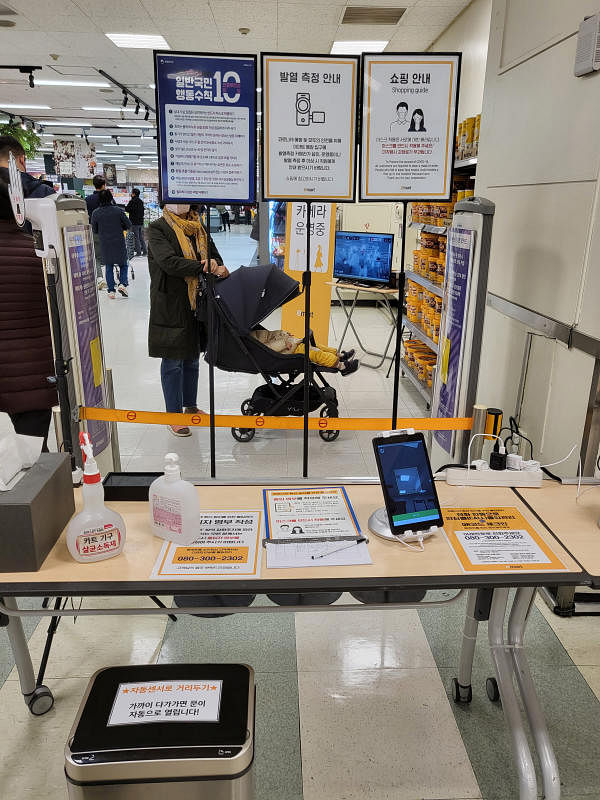
A Transport Ministry official told ST that there can be teething problems as not all businesses are aware of how to check the vaccination status of VTL travellers. "Restaurants in Myeongdong and Gangnam are aware of the VTL but small local restaurants may not be familiar with this," the official said. "There could be some trouble initially but it will all work out eventually."
7. What do Singaporeans living in Seoul advise?
Ms Chua Pei Chi, president of the Singapore Club Seoul, urged travellers to never remove their face masks in public areas and to refrain from talking loudly, especially on public transport. "Also comply with South Korea's gathering guidelines and do not be surprised if you get turned away by some restaurants, because they may not want to entertain big groups of foreigners," Ms Chua told ST.
"Don't expect a pre-Covid Korea, because everything has changed. Myeongdong is filled with empty shops and most of the street food stalls are not operating. But there are lots of Squid Game merchandise and sugar candies on sale."
Mr Justin Yong, who chairs the Singapore Chamber of Commerce in Korea, said travellers should learn some basic Korean to make communication with locals easier, and to dress warmly because temperatures are dropping as winter approaches.
8. What are some new travel attractions in Seoul city?
Travellers can "experience the beauty of Korean crafts such as embroidery, ceramics and traditional accessories" at the Seoul Museum of Craft Art, opened in July, according to a spokesman from Seoul Metropolitan Government.

Fans of the hit drama Squid Game can visit filming locations in north-eastern Ssangmun-dong, such as a convenience store where two main characters had a conversation, while fans of the Joseon-era zombie series Kingdom can visit royal palaces such as Changdeokgung to experience how it feels like to live in the last imperial dynasty (1392-1910) of South Korea.
9. What should you do if you develop Covid-19 related symptoms during your stay?
If you are in Seoul, you can get tested for free at any of the screening clinics in this list. You can also call the 24-hour Korea Travel Helpline at 1330 for assistance in English. You can also purchase an antigen rapid test kit from convenience stores and do a self-swab test.
10. What should you do before leaving South Korea?
Within 48 hours of your departure, you must take a PCR test at a medical institution recognised by Singapore's Ministry of Health and get a physical copy of a negative result. The list includes 179 hospitals, such as Samsung Medical Centre, Seoul National University Hospital and Soonchunhyang University Hospital, which are all located in Seoul. For details, log on to this page on the MOH website.
Join ST's Telegram channel and get the latest breaking news delivered to you.
- South Korea
- Aviation/Aerospace sector
- Vaccinated Travel Lane/VTL
- Coronavirus
Read 3 articles and stand to win rewards
Spin the wheel now

Freephone our UK Team
0800 072 6778
Sales & Service
Monday to Friday: 8:30am to 8pm Saturday: 9am to 5:30pm Sunday: 10am to 5:00pm
Monday to Friday: 9am to 7pm Saturday: 9am to 5:30pm
Travel Insurance
Medical travel insurance, seniors travel insurance, europe travel insurance, worldwide travel insurance, coronavirus travel insurance, south korea travel insurance.
- Unlimited medical emergency expenses¹
- Up to £10K cancellation cover
- 24/7 emergency medical helpline

Covered 27 million+ travellers
Trusted for 20+ years
24/7 emergency helpline
Planning a trip to South Korea?
If you are going to South Korea, don’t go without having any travel insurance in place. Read on for some tips on what to consider before selecting a policy:
- The cost of your trip or holiday – Unexpected events sometimes mean you have to cancel your holiday. Although that’s disappointing, it’s nice to know that you may be able get your money back
- The activities you’re likely to be doing – if you’re planning anything really extreme, we can offer you extra cover if needed. Just contact us
- The cost of your baggage
- Whether you are covered for civil unrest or not
- Also, don’t forget to check the latest travel advice for South Korea from the FCDO
Our Coronavirus Travel Insurance is rated Superior by a leading UK Consumer Champion. All of our policies will cover you if you catch Coronavirus.
What is covered with travel insurance to South Korea?
As standard, our policies cover for over 50 sports and activities , so you can get up to more on your holiday. We also offer a range of benefits, some of which include:
- Medical expenses and hospital benefit
- Personal accident and liability
- Cancelling and cutting short your holiday
- Abandoning your trip
- Delayed departure
- Accommodation cover
- Personal belongings and baggage
- Personal money, passport and travel documents
- Legal expenses
Your holiday is important to us and we want you to have the best trip possible. That’s why we’ve put together some helpful and fun facts, along with some other important information which you might want to know before your trip to South Korea:
Do I need a visa for South Korea?
If you’re a British citizen with a valid passport, you don’t need to apply for a visa to travel to South Korea. You’re allowed to visit South Korea as a tourist for up to 90 days without a visa, so long as you have a return ticket or proof of your onward journey.
More information about visas and entry requirements for South Korea can be found here.
Healthcare in South Korea
The healthcare services in South Korea are run by the Ministry of Health and Welfare and are available to both residents and visitors alike. The hospitals in South Korea are very well equipped and have some of the best facilities in the region, so you know you’ll be well looked after should you need medical treatment while abroad.
Its also important to remember to give you GP a call at least 4 to 6 weeks before your date of travel, to check whether there are any vaccinations that you may need before travelling.
You can find more information about the healthcare in South Korea here.
Medical & Emergency Assistance in South Korea
If something happens while you’re in South Korea and you need emergency treatment for an illness or injury, we’re here to help. All travel insurance policyholders can access our 24-hour medical assistance team .
Did you know that…?
- Spam is far more popular than Coca-Cola in South Korea. In SK the tinned ham-based luncheon meat has its biggest market outside the US. About 40% of it is bought for other people, with spam gift sets flying off the shelves during festivals.
- In all but the most touristy areas, South Koreans don’t expect a tip. Leaving the change is often welcome, but a large tip in some circumstances could be regarded as an insult, especially to a young woman. Just a little tip for you!
- South Korean taxis are colour coded. White are regular and owned by drivers; grey are owned by companies; black taxis are better and more expensive; yellow taxivans are for the disabled; and orange ones are for tourists, with multilingual drivers.
- Try as you might, you can’t get to South Korea by land. It’s on a peninsula and the country linking it to the rest of continental Asia is North Korea. Relations aren’t so good and the border is closed. Air or sea it will have to be…
- In South Korea exotic fruits don’t come cheap. A watermelon can cost more than £10. As it’s a bit special, it’s often presented as a gift with a neat little ribbon tied around it.
- Why are South Korean buildings so happy? Because their roofs smile. Many traditional Korean roofs have curving lines and turn upwards at the corners like a smile. The curves are thought to make use of natural irregularities in the wooden rafters.
- The South Korean equivalent of the US White House is known as the Blue House because of its blue-tiled roofs. It’s the official residence of the head of state and is a complex of buildings occupying 62 acres. The US White House sits on 18 acres.
- Unlimited emergency medical expenses available on Black level policies.
- Based on 2,050 responses, correct as of 22/01/2024
- Car Finance
- Hire Purchase
- Novated Leasing
- Bad Credit Car Loans
- Car Loan Refinance
- Business Car Loans
- Australian Car Statistics
- Car Loan Repayments Calculator
- Compare Car Loans
- Average Car Loan Interest Rates
- How Much Can I Borrow?
- How to Get a Car Loan?
- Caravan Loans
- Motorbike Loans
- Jet Ski Loans
- Camper Trailer Loans
- Loans for Harley-Davidson
- Boat Loan Calculator
- Caravan Buying Checklist
- How to Choose a Motorbike?
- Top Tips to Choose a Right Boat
- Equipment Finance
- Chattel Mortgage
- Truck Finance
- Aircraft Finance
- Technology Finance
- Agriculture Finance
- Plant & Machinery Finance
- Operating Lease
- Unsecured Personal Loans
- Low-interest Personal Loans
- Debt Consolidation Loans
- Travel Loans
- Wedding Loans
- Bad Credit Loans
- Compare Personal Loans
- Personal Loan Calculator
- Personal Loans Eligibility
- Unsecured Business Loans
- Small Business Loans
- Invoice Financing
- Business Overdrafts
- Cashflow Lending
- Small Business Start-up Loans
- Compare Business Loans
- Business Loan Interest Rates
- First Home Buyers
- Buy Next Home
- Investment Home Loans
- Home Loan Refinance
- Bad Credit Home Loans
- Self Employed
- Construction Home Loans
- Compare Home Loans
- How to Choose a Home Loan?
- Home Loan Repayments Calculator
- Borrowing Power Calculator
- Balance Transfer
- Frequent Flyer
- No Annual Fee
- Master Card vs Visa Card
- Maximise Credit Reward Points
- Perks of Using a Credit Card
- Manage Your Debt with a Balance Transfer Card
- Small Personal Loan
- Quick Cash Loan
- Rental Bond Loan
- Car Repair Loan
- Furniture Loan
- Emergency Loan
- Rent Arrears Loan
- Bank Accounts
- Savings Accounts
- Term Deposits
- Business Bank Accounts
- Debit Cards
- Kids Savings Accounts
- Margin Loans
- Travel Money Cards
- Best International Money Transfers
- Send Money to India
- Send Money to USA
- Send Money to New Zealand
- Send Money to UK
- Send Money to Canada
- Superannuation
- Compare Super Funds
- Cryptocurrency
- Share Trading
- Forex Trading
- CFD Trading
- Comprehensive Car Insurance
- Third Party Fire and Theft Car Insurance
- Third Party Property Damage Car Insurance
- CTP Insurance
- Classic Car Insurance
- Car Insurance for Young Drivers
- Seniors Car Insurance
- How Do I Compare Car Insurance?
- How Much is Car Insurance?
- Types of Car Insurance in Australia
- Market Value Vs Agreed Value
- Car Insurance with Choice of Repairer
- Landlord Insurance
- Building Insurance
- Flood Insurance
- Contents Insurance
- Best Home Insurance
- Cheapest Home Insurance
- Professional Indemnity Insurance
- Public Liability Insurance
- Product Liability Insurance
- Domestic Travel Insurance
- Cruise Travel Insurance
- Single Trip Travel Insurance
- Seniors Travel Insurance
- Best Travel Insurance
- Cheap Travel Insurance
- Travel Insurance for Pre-Existing Conditions
- What Does Travel Insurance Cover?
Why Do I Need Travel Insurance?
- Travel Insurance COVID-19
- Seniors Funeral Insurance
- Hospital Cover
- Extras Only Cover
- Singles Cover
- Couples Cover
- Family Health Insurance Cover
- Overseas Visitors Health Insurance Cover
- Health Insurance for Seniors
- Cheap Health Insurance
- Income Protection
- Personal Accident Insurance
- Trauma Insurance
- TPD Insurance
- Funeral Insurance
- Seniors Pet Insurance
- Cheap Pet Insurance
- Best Pet Insurance
- Electricity Plans
- Compare Electricity Plans
- Compare Gas Plans
- Solar Electricity Plans
- Green Energy Plans
- ADSL Broadband Plans
- Mobile Broadband
- Home Wireless Broadband Plans
- Internet Providers
- Best Broadband Deals
- Prepaid Plans
- iPhone Plans
- Unlimited Data Plans
- SIM-Only Plans
- Unlimited Data for Mobile Phones
- Travel Insurance for Mobile Phone
- Customer Reviews
Travel Insurance for South Korea
Travelling to South Korea for a much-needed getaway? Compare your travel insurance options with Savvy.
Fact checked
Compare Travel Insurance Quotes in 30 Seconds
- 100% free to use. No obligation.
Whether you’re wanting to visit the majestic Gyeongbokgung Palace or take a stroll around Nami Island, it’s a good idea to take out travel insurance on your holiday to South Korea. If you’re searching for the right travel insurance cover for your next international journey, Savvy can point you in the right direction.
By comparing with us, you can find a policy which offers you the right protection, whether your flights are delayed, your luggage goes missing or you fall ill while overseas. We provide instant quotes from our partners, so you can consider their pros and cons and compare the cost of each policy. Before you take off overseas, compare your travel insurance options with Savvy today.
Do I need travel insurance for a holiday to South Korea?
You don't necessarily ‘need' travel insurance if you're taking a holiday to South Korea. However, it's strongly recommended that you purchase a policy before you jet off on your next Asian holiday , whether you want to visit the hillside village of Busan or check out the ancient temples across Jeonju.
You won't need anything else on your trip because South Korea has it all. Its history and culture are rich, with delicious cuisine, welcoming locals, and high-quality tourist attractions. However, there are many dangers lingering for tourists and visitors to look out for, so it's paramount you compare with Savvy and get the best travel insurance before leaving.
If you’re eager to experience all of what the East Asian nation has to offer, some of the incidentals to watch for include:
- Border conflict: the Korean Peninsula is officially divided between South and North Korea. Even if military actions between the two sides are uncommon, tensions remain at dangerous levels. It's possible that things may become worse with little to no notice. When provoked, North Korea occasionally conducts missile launches or other similar activities. Keep an eye on the situation.
- Protests: massive demonstrations and rallies are commonplace in South Korea, and Seoul is no exception. These situations have the potential to become violent. Try to stay away from any big crowds.
- Crime: South Korea has a low crime rate. However, there is still a small crime level, notably in Seoul and Busan. Sexual assaults, tainted drinks, and other acts of violence against tourists have been recorded. Don't take strangers' beverages, food, gum, or cigarettes, and keep your valuables nearby.
- Monsoons: South Korea's monsoonal season runs from June to August. However, there is a risk of typhoons in September, which may lead to floods and mudslides. Find a safe place to go in advance of a typhoon. Typhoons may abruptly shift course and intensity.
- Medical tourism: in recent years, South Korea has been hit by a widespread measles epidemic. Before you go on your trip, check to see whether you're up to date on your immunisations.
What’s covered by my travel insurance for my holiday to South Korea?
One of the reasons you need travel insurance is to protect you if you become ill or injured while travelling, lose your things, or suffer flight cancellations or delays. Some of the ways travel insurance covers you include:
- Overseas medical bills: If you want peace of mind in case you become sick or hurt in South Korea and need medical assistance, buying travel insurance is a great option. South Korean hospitals are of a good standard, but doctors and workers speak very little English and you may have to pay upfront.
- Evacuation or repatriation: you may need medical evacuation back to Australia if you are in a critical condition due to illness or injury. Luckily, your insurer can pay for your evacuation and repatriation, including if you need to disembark a cruise ship, which may cost up to $100, 000 without insurance.
- Cancellation: many travel insurance carriers may refund pre-paid deposits on hotels, flights, or excursions if you cancel your trip due to a covered occurrence . Illness, injury, or a sick or dying family member are among the valid reasons for cancelling a trip.
- Lost, stolen or damaged bags: most insurance providers will compensate or replace lost, stolen, or damaged baggage up to an agreed claim amount, which can reach up to $15,000.
- Individual items: taking a mobile phone or laptop on your overseas or domestic getaway? Many insurance plans offer sub-limits for lost, damaged, or stolen property.
- Travel delays: most travel insurance coverage hotel, food, and other expenses if your flight is delayed longer than 24 hours. This includes delayed luggage owing to a delayed airliner. Most insurers have limits on how much you can claim if your travel arrangements are delayed.
- Personal liability: legal issues abroad may be costly. If you're held directly accountable for damage or injury, most companies may cover you up to $5 million.
- Accidental death: if you die overseas in a covered accident, your insurance company can repatriate your remains. They may pay up to $25,000 for funeral or cremation fees.
- Optional extras: planning to go bungee jumping off the Gapyeong Top Land or zipline through Nami Island? Most travel insurance plans don't cover these activities automatically, but they do offer supplementary coverage for an added premium.
- Pet cover: if your return home is delayed due to sickness or travel disruptions, your travel insurance can cover the additional boarding costs for your pet.
However, most travel insurance companies won’t cover you for the following incidentals:
- Unapproved pre-existing medical conditions
- Lost personal items left unattended
- Breaking local laws and road rules
- Travelling for medical tourism
- Accidents caused by drug or alcohol use
- Travelling to a country against Australian government advice
What factors should I consider before buying travel insurance for a trip to South Korea?
It might be difficult to figure out which policy provides the most beneficial coverage for your next trip to South Korea. However, by comparing with Savvy and getting a few travel insurance quotes, you may be able to make the experience of searching for the perfect policy a whole lot easier.
Premium cost
It is, of course, in your best interest to keep your insurance premium costs to a minimum. To avoid overpaying for your travel insurance, it is crucial to shop around and get the best possible policy at a price that works for you. If you’re over 80 and planning a trip to South Korea, you’ll likely be paying a higher premium based on your age, so it will be worth shopping around to find the best seniors' travel insurance policy.
The type of policy you need
Numerous options exist for travel insurance, whether you're looking for single-trip, annual or one-way cover, so it’s important to consider your travel requirements. For example, if you’re travelling to South Korea but also taking a holiday to Japan within the year, it might be good to find a multi-trip policy may be more suited to you than single trip. Take a look at your itinerary, think about how often you’ll be flying and compare it with Savvy so you can get the best insurance for your trip.
What you’re doing in South Korea
Carefully consider which insurance company provides the greatest value and level of protection if you’re looking to partake in high-risk pursuits before signing up. If you’re planning to climb Mount Bukhasan or paraglide at Yangpyeong, make sure you get a policy that covers you.
Claim limits
In most cases, the amount you may claim from your overseas travel insurance policy will be capped. Check if these limits are enough for your trip and the items you want to take with you by doing a side-by-side comparison with Savvy. For example, most comprehensive policies allow you to claim up to $7, 500 if you lose your luggage or have it damaged while on holiday, compared to some other providers who only let you claim $3, 000.
Inclusions and exclusions
When searching for the best international policy for your trip to South Korea, make sure you opt for a policy that best suits your needs. Before settling on one choice, do your homework and weigh what's included and what isn't. For example, a pre-existing condition you suffer from may not be automatically included under one policy, while it could be covered by a competitor.
Types of travel insurance
International.
International travel insurance can offer cover for a range of events, including medical expenses, lost luggage or items, cancellation fees and more when you're overseas and a long way from home.
If you're journeying within Australia, domestic policies are designed to offer many of the same protections as international travel insurance (with the exception of medical expenses).
Single trip
The most standard and common type of travel insurance, this policy can cover you for one trip starting and ending in Australia (and is available for both international and domestic travel).
Annual multi-trip
As the name suggests, this type of travel insurance covers multiple trips over a 12-month period. Depending on your insurer, you may be able to take an unlimited number of trips up to 90 days each.
You don't have to have a return ticket booked to take out cover while you're overseas. One-way travel insurance enables you to access cover without a set end date, such as if you're moving temporarily.
You may need to take out specialist coverage if you're setting sail on a cruise. Fortunately, cruise insurance can cover emergency evacuation, cabin confinement and more.
Just because you're older doesn't mean travel insurance isn't still important. If you qualify for cover, seniors' travel insurance can offer greater peace of mind for included events while you're travelling.
Adding winter sports or ski cover to your policy can add protection against damage to your equipment, piste closure due to bad weather and activities such as back-country skiing, heliskiing and more.
Adventure sports
Looking to enjoy some adventure sports on holiday? An adventure sports pack can grant you cover for a range of activities, such as hiking, scuba diving and motorcycle or scooter riding.
Jetsetting with the whole clan in tow? Some insurers offer family travel insurance, which enables you to include yourself, your partner and your dependent children under one policy to help you save.
If you're travelling interstate or overseas with your partner (or simply another friend or family member), you may be able to access a discount by taking out a joint or duo travel insurance policy.
Why compare travel insurance with Savvy?
Reputable insurance partners, fast and convenient online process.
You can complete the quote, comparison and purchase process online through Savvy quickly and easily.
Competitive quote costs
Regardless of the type of insurance you’re looking for, we can help you compare between competitive quotes.
Top tips for saving on your travel insurance to South Korea
Combine policies.
You can get group policies from providers covering you and your partner, your extended family, and even your children or grandchildren. Most travel insurance providers allow you to include up to 25 people under the same policies, which, if the costs are divided among the travellers, can save you money.
Consider increasing your excess
You can take out cheaper travel insurance by increasing the excess you're willing to pay if you need to file a claim. A higher excess can help you save money in the long term, but it shouldn't be so high that it causes you financial hardship to pay it.
Only pay for what you need
There's no point paying for cover you're not going to use, whether you’re travelling for business or leisure. Before you purchase a travel insurance policy, read the PDS and make sure you aren’t paying extra for add-ons such as rental car hire or cruise coverage if you don't have any intentions of either hiring a car or sailing across the international seas.
Compare your travel insurance options
Using Savvy to help you decide lets you easily see which travel insurance provider gives you the best travel insurance coverage for the lowest price. You can compare policies side by side so you can weigh what's included, what's not included, the price of your premium, and any other essential factors.
Frequently asked questions about travel insurance to South Korea
Yes – most travel insurance policies cover any COVID-19-related expenses, such as medical treatment while you’re in South Korea and the need to cancel your holiday if you test positive before you leave. However, cancellation due to COVID-19 isn’t usually available on basic policies. The risk of testing positive for COVID-19 is still quite high if you’re travelling to South Korea as of October 2022, so it’s best to wear a mask when possible if you’re worried about contracting the disease.
Yes – you can buy travel insurance online if you’re already wheels up and headed to South Korea for your holiday. You won’t need much to take out travel insurance, only the details of your trip and some other important information. You’ll be afforded the exact coverage you would usually get if you purchased before departure. However, these policies have waiting periods of between 48 and 96 hours. This means that if you suffer a claimable incident inside this period, you won’t be able to make a claim.
Most people in the know will tell you the best time to purchase your travel insurance is when you know your travel dates. That allows you to be covered for the maximum amount of pre-paid bookings, such as those for hotels or tours if something unforeseen happens and you need to call off your holiday. There are also often sales on around holiday periods, such as Easter, Christmas and the End of the Financial Year, which means you could snap up a policy at a discount.
When you do it online, claiming on your travel insurance is a pretty easy process. When you go to your insurance company's website, enter your policy number and the email address that goes with it. From there, you can do the following:
- Fill out your claim form with plenty of detail
- Attach any documents, such as receipts, medical evidence, or proof of purchase
- Submit your claim
The majority of the time, you should hear back from your travel insurance company within about ten business days. It's best to quickly answer any requests for more information to avoid slowing down the process.
There’s no average cost of travel insurance per se. instead, the price of your premium for a trip to South Korea will be determined by a range of interchangeable variables, including:
- The length of your trip and destinations
- Whether you suffer any pre-existing conditions
- If you need optional extras, such as adventure sports cover
- The insurance company you’ve chosen
- The level of cover you have purchased
- What part of South Korea you’re travelling to (for example, you may not be able to receive cover if you’re travelling somewhere experiencing a natural disaster or terrorism event)
Helpful travel insurance guides

What Do I Need for Travel Insurance?
Compare with Savvy and find out what you need to purchase travel insurance for your holiday. Compare Travel Insurance Quotes...

How Much Is Travel Insurance?
Wondering how much your travel insurance might cost? Compare with Savvy and find out today. Compare Travel Insurance Quotes in...

Best International Travel Insurance
Travelling abroad? Compare policies and find your international travel insurance here with Savvy. Compare Travel Insurance Quotes in 30 Seconds...

Best Travel Insurance for Cruises
If you’re chasing travel insurance for your next cruise, compare with Savvy and get the best policy today. Compare Travel...
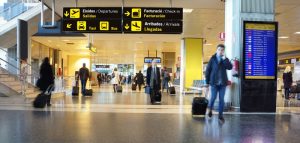
Travel Insurance That Covers Border Closures
Find out if travel insurance policies cover border closures by comparing with Savvy. Compare Travel Insurance Quotes in 30 Seconds...


Optional Cover Travel Insurance
Explore the many optional extras travel insurance offers by comparing with Savvy. Compare Travel Insurance Quotes in 30 Seconds Get...
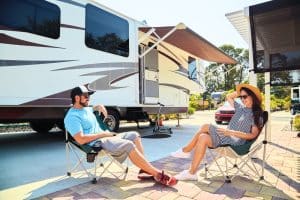
Cheap Domestic Travel Insurance
Compare with Savvy and find a cheap travel insurance deal for your next domestic holiday. Compare Travel Insurance Quotes in...
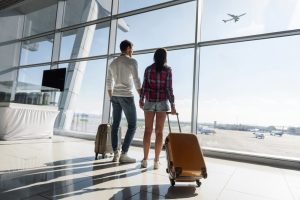
Asking yourself why you need travel insurance for your holiday? Compare with Savvy and understand the benefits. Compare Travel Insurance...
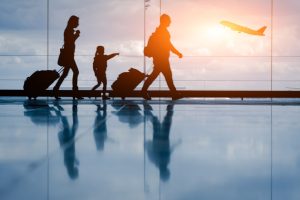
Average Cost of Travel Insurance
Learn more about the average price of travel insurance when you compare with Savvy. Compare Travel Insurance Quotes in 30...

Best Multi-Trip Travel Insurance Australia
Compare your multi-trip travel insurance options with Savvy to help you find the best. Compare Travel Insurance Quotes in 30...
Explore your travel insurance options for your next destination
Travel Insurance for Belgium
Travel Insurance for Antarctica
Travel Insurance for Brazil
Travel Insurance for Poland
Travel Insurance for Indonesia
Travel Insurance for Norfolk Island
Travel Insurance for Africa
Travel Insurance for Vietnam
Travel Insurance for Cambodia
Travel Insurance for Cuba
Travel Insurance for Ghana
Travel Insurance for Bulgaria
Travel Insurance for Hungary
Travel Insurance for the Seychelles
Travel Insurance for Thailand
Travel Insurance for Sri Lanka
Travel Insurance for Turkey
Travel Insurance for Amsterdam
Travel Insurance for the Maldives
Travel Insurance for Oman
Travel Insurance for Croatia
Travel Insurance for Chile
Travel Insurance for Southeast Asia
Travel Insurance for Dublin
Travel Insurance for Portugal
Travel Insurance for Germany
Travel Insurance for New Zealand
Travel Insurance for Bali
Travel Insurance for Iceland
Travel Insurance for Prague
Disclaimer: We do not compare all travel insurance brands currently operating in the market. Any advice presented above or on other pages is general in nature and does not consider your personal or business objectives, needs or finances. It’s always important to consider whether advice is suitable for you before purchasing an insurance policy.
Savvy earns a commission from our partners each time a customer buys a travel insurance policy via our website. We don’t arrange for products to be purchased from these brands directly, as all purchases are conducted via their websites.
Before purchasing your policy, we recommend you refer to the provider’s PDS for any further information on the terms, inclusions and exclusions.
- Giving Back
- Partner with us
- Privacy Policy
- Terms of Use
- Credit Guide
- How We Handle Complaints
- Scam and Fraud Warning
- Comparison Rate Warning
1300 974 066
Sign up to our newsletter.
Quantum Savvy Pty Ltd (ABN 78 660 493 194) trades as Savvy and operates as an Authorised Credit Representative 541339 of Australian Credit Licence 414426 (AFAS Group Pty Ltd, ABN 12 134 138 686). We are one of Australia’s leading financial comparison sites and have been helping Australians make savvy decisions when it comes to their money for over a decade.
We’re partnered with lenders, insurers and other financial institutions who compensate us for business initiated through our website. We earn a commission each time a customer chooses or buys a product advertised on our site, which you can find out more about here , as well as in our credit guide for asset finance. It’s also crucial to read the terms and conditions, Product Disclosure Statement (PDS) or credit guide of our partners before signing up for your chosen product. However, the compensation we receive doesn’t impact the content written and published on our website, as our writing team exercises full editorial independence.
For more information about us and how we conduct our business, you can read our privacy policy and terms of use .
© Copyright 2024 Quantum Savvy Pty Ltd T/as Savvy. All Rights Reserved.
Cookies on GOV.UK
We use some essential cookies to make this website work.
We’d like to set additional cookies to understand how you use GOV.UK, remember your settings and improve government services.
We also use cookies set by other sites to help us deliver content from their services.
You have accepted additional cookies. You can change your cookie settings at any time.
You have rejected additional cookies. You can change your cookie settings at any time.
- Passports, travel and living abroad
- Travel abroad
- Foreign travel advice
South Korea
Warnings and insurance.
The Foreign, Commonwealth & Development Office ( FCDO ) provides advice about risks of travel to help British nationals make informed decisions. Find out more about FCDO travel advice .
Before you travel
No travel can be guaranteed safe. Read all the advice in this guide as well as support for British nationals abroad which includes:
- advice on preparing for travel abroad and reducing risks
- information for women, LGBT+ and disabled travellers
Follow and contact FCDO travel on Twitter , Facebook and Instagram . You can also sign up to get email notifications when this advice is updated.
Travel insurance
If you choose to travel, research your destinations and get appropriate travel insurance . Insurance should cover your itinerary, planned activities and expenses in an emergency.
Related content
Is this page useful.
- Yes this page is useful
- No this page is not useful
Help us improve GOV.UK
Don’t include personal or financial information like your National Insurance number or credit card details.
To help us improve GOV.UK, we’d like to know more about your visit today. We’ll send you a link to a feedback form. It will take only 2 minutes to fill in. Don’t worry we won’t send you spam or share your email address with anyone.

Travel Insurance Korea

Located in the southern part of the Korean Peninsula, the Republic of Korea also referred to as South Korea, is an important country in the South-East Asian geo-political setup. Surrounded by the Yellow Sea to its West and the Sea of Japan to its East, this picturesque nation is renowned for its diverse landscape.
The terrain of South Korea has all of nature's bounties, including lofty mountains, coastal plains, basins and valleys of rivers, evergreen forests, and beautiful beaches. Marked by a subtropical climate, this nation is a popular tourist destination.
Seoul, the capital city of South Korea, is the fifth largest metro city in the world and is home to almost 50% of the nation's total populace. A majority of the tourist interest in South Korea revolves around Seoul and its surrounding areas.
If you are planning a trip to South Korea, it is important to make a detailed plan and checklist. Along with planning the South Korea trip cost from India, the top of your checklist should include the travel requirements to the country, including visa and travel insurance .
Since there is no visa agreement between India and South Korea, Indian nationals travelling to the East Asian nation are required to have a pre-approved visa. It is, therefore, necessary to ascertain the type of South Korean visa you need to apply for and submit the application in a timely manner.
In addition to applying for a visa for South Korea, you must also focus on choosing a suitable travel insurance policy. There are several risks involved in international travel, and a travel insurance plan is a simple yet effective shield against a majority of those risks.
At Tata AIG, we offer a wide range of international travel insurance policies, starting at as low as ₹40.82 per day*. You can visit our official website and compare travel insurance plans and premia in a few quick steps. By choosing Tata AIG for your Travel Insurance Korea Plan, you will have chosen a feasible travel policy laden with benefits.
Canada Travel Insurance
Major benefits of purchasing the best travel insurance south korea plan.
Irrespective of where your international travels lead you, one thing remains constant - the fact that you must invest in an optimal travel insurance plan. The same is true for a trip to South Korea from India.
In order to have the best possible layer of financial security during your South Korean travels, you must opt for a travel insurance policy that combines a host of benefits and a feasible cost. This is exactly what Tata AIG's Travel Insurance South Korea Plan encompasses.
Here are the major benefits of the plan:
- Coverage against Baggage loss and delay
- Hijack cover
- Coverage against flight delay and cancellation
- Personal Liability Cover
- Coverage against the loss of passport
- Coverage against theft
- Coverage against Accident and Sickness
- Travel assistance Cover
- Coverage against Covid-19
- Option to extend your travel insurance plan's validity by up to seven days if your flight gets cancelled or delayed and the plan is about to expire
- Flexibility to extend the plan validity by up to 60 days in the event of accident, illness, and/ or hospitalisation close to the plan's expiration
Travel Insurance for Korea from India
Whether international travel is undertaken for business, leisure, or the pursuit of any educational qualifications, it entails a high degree of uncertainty. The moment you cross the sovereign boundaries of India and enter any foreign territory, you cease to enjoy as much protection and security as you do in your homeland.
Although it is impossible to control circumstances, you can add a layer of certainty and safety to your international trips by opting for a comprehensive travel insurance plan. Such a plan offers you financial protection against a wide gamut of potential events, ranging from accidents to personal liabilities, loss of passport to cancellations of flights and/ or hotel bookings.
Whilst planning for your South Korea travel plans, you must give due emphasis to the selection of a suitable travel insurance policy. At Tata AIG, we have designed our travel insurance plans keeping in mind the myriad of risks of international travel. Therefore, these plans comprise extensive coverage and flexibility for extensions, if required. Your search for a Travel Insurance South Korea plan stops at Tata AIG.
Why You Need A Travel Insurance Plan For a Trip to South Korea from India
It is natural to have a myriad of things to tick off the checklist for an international trip. From applying for the right category of visa to booking flight tickets and finalising accommodation arrangements, your plate is bound to be filled with to-dos.
In such a scenario, buying travel insurance often gets relegated. As important as it is to make travel arrangements, it is equally important to secure those arrangements with the selection of an adequate travel insurance policy.
The first and foremost reason for investing in travel insurance is the fact that there is substantial uncertainty attached to a foreign trip. You could end up falling ill or meeting with an accident, losing your passport or baggage, or being involved in some incident that results in personal liability.
It is virtually impossible to predict or avoid most such events. You can, however, ensure that you are well prepared, at least financially, for any eventuality during your trip to a foreign nation. With a significant amount of money already invested in your trip, you should not have to worry about the cost of potential medical expenses and flight or hotel cancellations.
Your international travel should be undertaken with peace of mind, which is why it is prudent to select a travel insurance policy with adequate coverage. That is precisely what we offer with the Tata AIG Travel Health Insurance South Korea Plan.
Should you opt for our Seoul Travel Insurance Plan, you can enjoy several covers, including journey cover, baggage cover, personal liability cover, accident and illness cover, hijack cover etc. And the best part is that our plans have been designed to be light on your wallet.
Tata AIG's Travel Insurance Korea Plan: Benefits Offered
When it comes to international travel insurance, there is no such thing as a plan that fits everyone's distinct travel insurance requirements. With our highly flexible travel insurance plans, though, you can enjoy a host of benefits and a significant degree of customisation.
Not only can you choose the sum insured and extent of the coverage for your Travel Insurance Korea Plan, but you can also benefit from plan extensions in the event of medical emergencies and flight delays/cancellations.
Here are the major benefits of the Tata AIG Travel Insurance South Korea Plan.
1. Medical Cover : One of the most significant benefits of our travel insurance plans is the coverage for medical treatment. In the unfortunate event of you falling prey to any illness or getting injured in an accident or hospitalised during your South Korea trip, such a plan can serve as your financial shield. And the plan can be extended up to 60 days if you need medical assistance towards the end of your trip or plan expiration date.
2. Covid-19 Cover : Over the past few years, there has been another risk underlining international travel. The Covid-19 pandemic has changed the way we live and travel and brought about a significant transformation in international travel norms. To accommodate the risk of you contracting Covid-19 during your trip, our plan covers the expenses associated with the hospitalisation due to Covid-19.
3. Baggage Cover : Airports are akin to labyrinths, and it is commonplace for baggage to be delayed or lost in transit. Such an event could affect your travel plans and itinerary in an adverse manner. If you select our travel insurance plan, however, you can benefit from our extensive baggage cover. This plan covers the expenses incurred in the purchase of essential items in the wake of baggage loss or delay.
4. Journey Cover : In order to ensure that your international trip is financially safeguarded against any journey risks, we have included a journey cover in our international travel insurance plans. This benefit covers loss of passport, delay or cancellation of flights, cancellation of hotel bookings, etc.
5. Other Benefits : Some other prominent benefits of our Travel Insurance Korea plan are as follows:
- Travel assistance
- No medical check-up for policy issuance
- Swift and simple purchase process
- Easy and seamless claims process
- Coverage in United States Dollars for policies purchased in Indian National Rupee
Visa Information for Your South Korea Travel Plan
Before travelling to the Republic of Korea, you must apply for a visa to the country. India and South Korea do not share a visa-free or visa-on-arrival agreement, thereby making a pre-approved visa mandatory for all Indian nationals travelling to the East Asian nation. The first decision you must make vis-a-vis a South Korean visa is the type of visa you need. There are two main types of visas you can choose from, namely Short Term Visas and Long Term Visas. These visa types have several subcategories which have been detailed below.
1. Single Entry Short Term Visa : Should you wish to travel to the Republic of Korea for a short duration, you must apply for a Single Entry Visa. With a validity period of 90 days from the issuance date, this visa allows for a single entry to the country's territory and a maximum stay of 30 days.
2. Double Entry Short Term Visa : Another type of Short Term Visa for South Korea is the Double Entry Visa. For all intents and purposes, this visa is similar to a single entry visa, albeit with the permissibly to enter the country twice during the validity period of the visa. If you have this type of visa, you can stay in South Korea for a maximum of 30 days over a six-month period.
3. Multiple Entry Short Term Visa : A Multiple Entry Visa for South Korea is issued to people who intend to enter the country multiple times over the course of the visa's validity. Generally, this type of visa is issued to business persons and the validity of the visa is case specific.
4. Long Term Single Entry Visa : A Long Term Single Entry Visa for South Korea is issued to people who wish to travel to the country for a long stay and desire single entry. This type of visa is issued to spouses and unmarried children of people who are registered in South Korea. Other key target categories of this visa are foreign nationals who are employed in South Korea and researchers and scholars.
The process of visa application and approval for South Korea has become more stringent in the wake of the Covid-19 pandemic. You must, therefore, choose the right category of visa and apply for it well in time.
It is pivotal to follow all the steps of the application process as prescribed and prove that you have no malicious intent to enter the country. If you dot your Is and cross your Ts, you should be able to get your South Korea visa in time.
Documents Required for Travelling to South Korea
Here are the major documents required for travelling to South Korea:
- A valid passport
- Two recent passport-sized photographs
- Your travel itinerary for South Korea
- A copy of your approved visa application form
- Evidence supporting hotel bookings or other accommodation arrangements in South Korea
- South Korea Travel Insurance Policy
- A copy of your return ticket from South Korea
- A cover letter, mentioning the purpose of your visit
- Proof of sufficient funds for your stay in South Korea
- Your Salary slips for the preceding six months
- Your Income Tax Returns for the preceding three years
The Indian Embassy in South Korea
The Indian Embassy in the Republic of Korea is located in the capital city of Seoul. Here is the relevant information about the embassy, which can be handy during your South Korea trip.
Safety Tips for Travelling to South Korea
During your trip to South Korea, you must follow all the local laws and be mindful of your safety at all times. Here are a few handy safety tips for your trip.
- Never go anywhere without your passport in tow.
- Follow all the laws and policies of the country, especially any South Korean travel restrictions owing to Covid-19.
- Stay away from demonstrations which are quite common in South Korea.
- Carry a map of the country and use it when required.
- Be mindful of the laws surrounding alcohol consumption in South Korea.
- Use only recognised means of public transport.
- Ensure the safety of your important documents and luggage.
- Keep the contact information of the Indian Embassy in South Korea handy.
Covid-19 Safety Recommendations For Your Trip to South Korea
With the Covid-19 pandemic wreaking havoc across the globe, most countries had to put stringent travel and entry restrictions into place. South Korea had also followed suit. However, with the reduction of cases and the need to promote tourism, the South Korean government has recently eased said restrictions.
As of 4th August 2022, the Republic of Korea has eliminated all South Korean travel restrictions for tourists. There will be no need for quarantine upon arrival in the East Asian nation. Travellers to the country will, however, be required to undertake a PCR test within a day of entering the territory of South Korea.
For the seamless administration of PCR tests for visitors, the authorities in the country have established test centres in all major airports across the nation. To this end, three such centres are operational at the Incheon International Airport in Seoul and one is operational at the Gimhae International Airport in Busan.
In addition to submitting to a PCR test upon entry into South Korea, you must follow certain standard Covid-19 safety norms, such as:
- Wearing a mask in public places
- Washing your hands at regular intervals
- Avoiding crowded places
- Following any South Korean travel restrictions imposed by the government
Major International Airports in South Korea
The major international airports in South Korea are as follows:
- The Incheon International Airport in Seoul
- The Gimhae International Airport in Busan
- The Gimpo International Airport in Seoul
- The Jeju International Airport in Jeju City
- The Cheongju International Airport in Cheongju
Currency and Foreign Exchange For South Korea
The currency of South Korea is the South Korean Won. During your trip to South Korea, you must have a sufficient quantity of the South Korean Won. It is, therefore, important to keep track of the exchange rate between the Indian National Rupee and the Won, which keeps fluctuating.
You can check the latest exchange rate between the above two currencies here.
The Best Places to Visit in South Korea
South Korea is a country adorned with diverse landscapes and cultures. From serene islands to some of the world's largest metropolises, the East Asian nation has something to cater to the expectations of all kinds of tourists. Whilst planning your trip to South Korea, you must research the best places to visit in the country and carefully craft your itinerary.
Here are some of the places that you simply must visit during your trip to South Korea:
1. Seoul: Celebrated for its hues and vibrance, the capital city of Seoul is a must-visit place in South Korea. The city presents a rare amalgamation of rich history and modern architecture. When in Seoul, you must visit the National Museum, the Bukhansan National Park, and the shopping region of Gangnam.
2. Jeju Island : Counted amongst the new seven wonders of nature, Jeju Island is a breathtaking place. Adorned with white sands, beautiful pine forests, and stunning botanical gardens, Jeju Island is a paradise for nature enthusiasts.
3. Pyeongchang Country : Located 180 kilometres from Seoul, Pyeongchang Country is one of the most frequented tourist hotspots in South Korea. Home to the Odaesan National Park, the region is renowned for its ski resorts and Buddhist shrines.
4. Boseong Green Tea Field : Picture yourself surrounded by verdant tea fields and the serenity of nature - that is precisely what a visit to the Boseong Green Tea Field entails. Host to the famous Green Tea Festival, this place is a must-add to your South Korean itinerary.
5. Seongsan Sunrise Peak : There is something eternally magical about sunrise, and the Seongsan Sunrise Peak in South Korea is one of the best places in the world to behold the rising sun. Created by hydrovolcanic eruptions over 5,000 years ago, this picturesque stroke on nature's canvas is sure to take anyone's breath away. Do not miss this UNESCO World Heritage Site on your trip to South Korea.
The Best Time to Visit South Korea
The best time to plan your South Korean travel is during the months of April and June. It is during this time that spring springs in the beautiful nation and there are cherry blossoms galore. The temperature in the country during this season hovers between 11 degrees Celsius and 27 degrees Celsius, making it the ideal time for a pleasant trip.
The display of any trademarks, tradenames, logos and any other subject matter of intellectual property on this page pertains and belongs to their respective owners. The display of such intellectual properties on this page must not be construed as an indication of Tata AIG's association or partnership with the owners of said intellectual property.
Subject to change based on the nature, extent and duration of the travel insurance policy.
Other Destinations
Disclaimer / tnc.
Your policy is subjected to terms and conditions & inclusions and exclusions mentioned in your policy wording. Please go through the documents carefully.
Related Articles
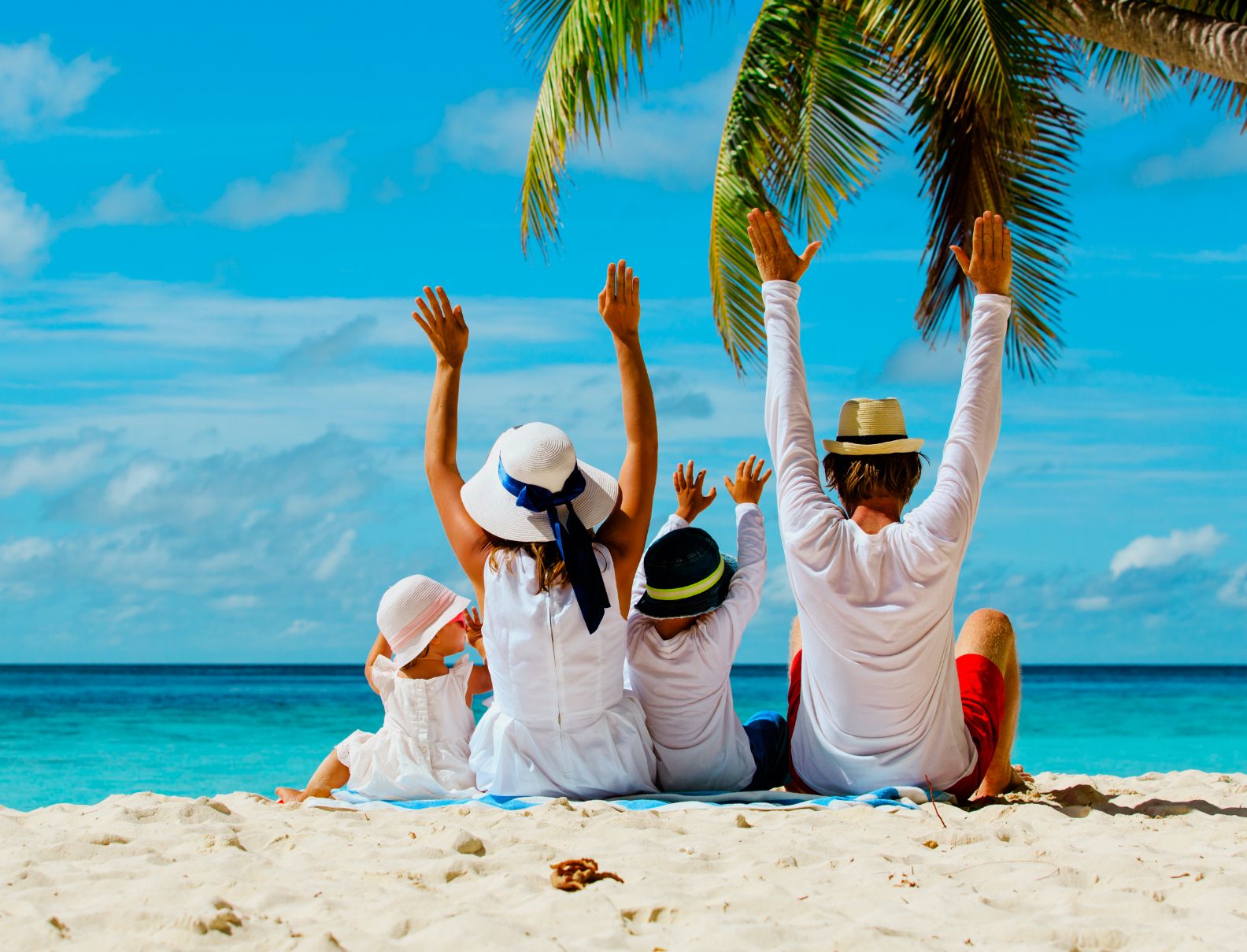
Going for a vacation. Here are five reasons you need travel insurance
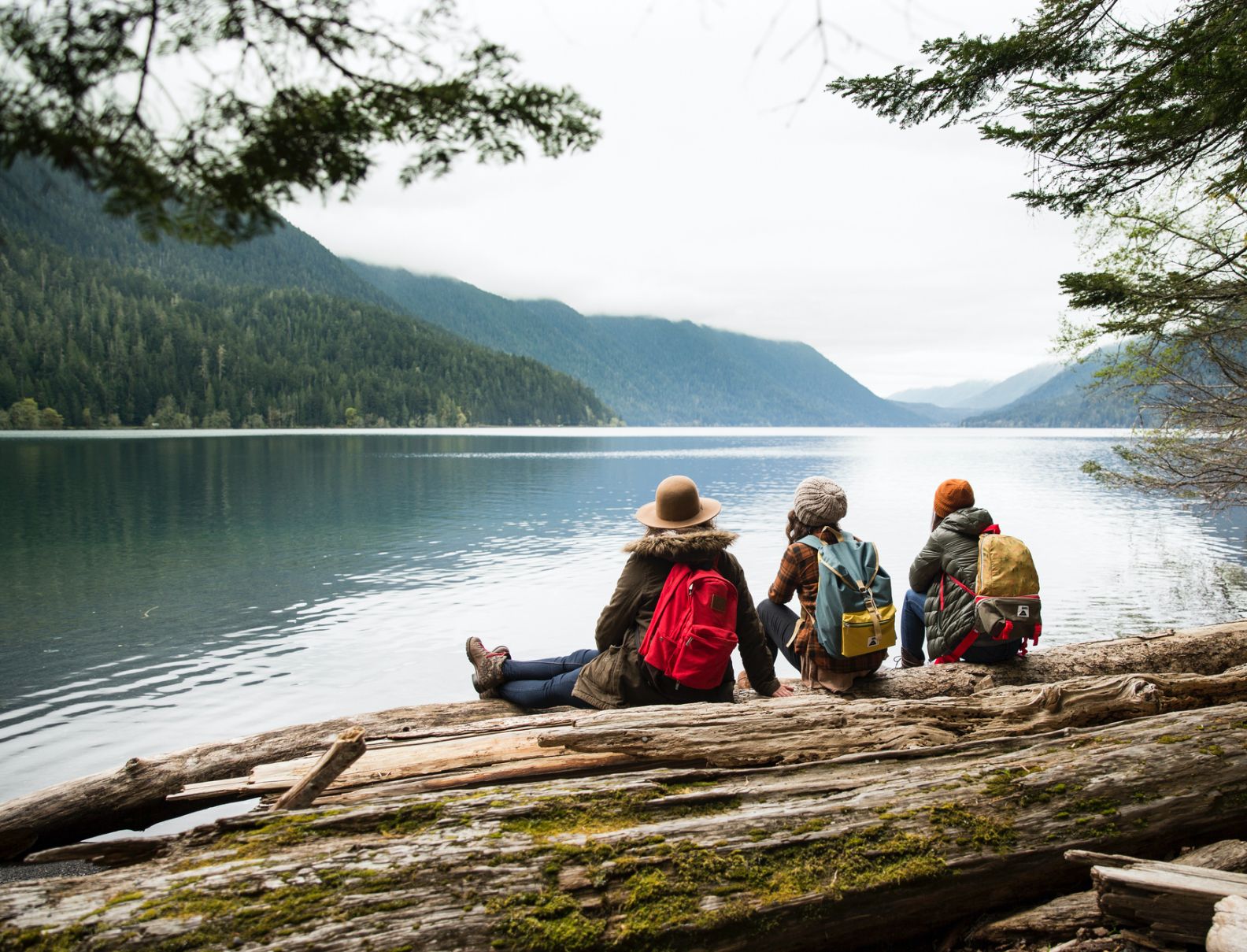
5 Myths of Travel Insurance
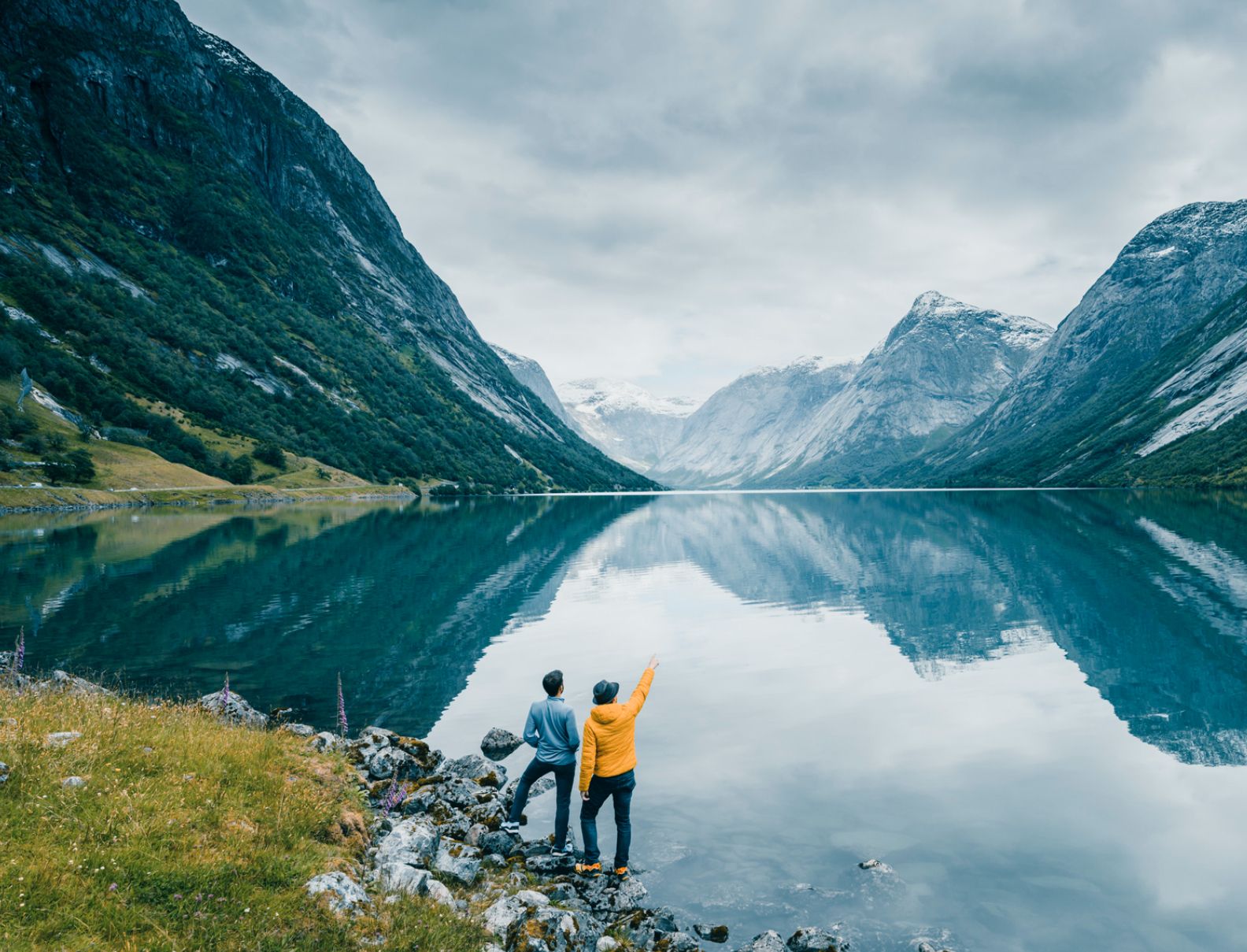
Why senior citizens travel insurance is must?
1. does south korea offer visa-on-arrival to indians.
No. India and South Korea have not signed a visa-on-arrival agreement. Therefore, all Indians planning a trip to South Korea should obtain a pre-approved visa.
2. How much do I need to pay to buy the Tata AIG Travel Insurance South Korea Plan
You can buy Tata AIG's Travel Insurance Korea Plan starting at ₹40.82 per day*.
3. What are the different travel insurance plans offered by Tata AIG?
The different travel insurance plans offered by Tata AIG are as follows:
- Domestic Travel Insurance Plans
- International Travel Insurance Plans
- Travel Insurance Plan for Students
- Travel Insurance Plan for Senior Citizens
4. Do I need any health check-ups to purchase travel insurance from Tata AIG
No, you need not go through any health check-ups to buy travel insurance from Tata AIG.

Insurance is the subject matter of the solicitation. For more details on benefits, exclusions, limitations, terms and conditions, please read sales brochure / policy wording carefully before concluding a sale. Trade logo displayed above belongs to TATA Sons Private Limited and AIG and used by TATA AIG General Insurance Company Limited under License. 2008, TATA AIG General Insurance Company Limited, all rights reserved. Registered Office : Peninsula Business Park, Tower A, 15th Floor, G.K.Marg, Lower Parel, Mumbai - 400 013, Maharashtra, India. CIN: U85110MH2000PLC128425. IRDA of India Regn. No. 108. Toll Free Number : 1800 266 7780 / 1800 22 9966 (only for senior citizen policy holders). Email Id – [email protected] . Category of Certificate of Registration: General Insurance.
2008, Tata AIG General Insurance Company Limited, all rights reserved. Registered Office : Peninsula Business Park, Tower A, 15th Floor, G.K.Marg, Lower Parel, Mumbai - 400 013, Maharashtra, India. CINNumber : U85110MH2000PLC128425. Registered with IRDA of India Regn. No. 108. Insurance is the subject matter of the solicitation. For more details on benefits, exclusions, limitations, terms and conditions, please read sales brochure / policy wording carefully before concluding a sale. Trade logo displayed above belongs to Tata Sons Private Limited and AIG and used by TATA AIG General Insurance Company Limited under License. Toll Free Number : 1800 266 7780 / 1800 22 9966 (only for senior citizen policy holders). Email Id – [email protected] .
- Travel, Tourism & Hospitality
Industry-specific and extensively researched technical data (partially from exclusive partnerships). A paid subscription is required for full access.
Share of people buying travel insurance post-COVID South Korea 2022, by age
Share of travelers planning on purchasing travel insurance for post-covid trips in south korea as of july 2022, by age group.
- Immediate access to 1m+ statistics
- Incl. source references
- Download as PNG, PDF, XLS, PPT
Additional Information
Show sources information Show publisher information Use Ask Statista Research Service
Rakuten Insight
August 2022
South Korea
July 14 to 30, 2022
2,389 respondents
16 years and older
Online survey
Original question: "Do you plan to purchase travel insurance for your post-COVID travels?"
Other statistics on the topic
Leisure Travel
Leading outbound travel destinations from the UK 2019-2022
Average number of vacations abroad taken per person in the UK 2011-2022
Share of Britons taking a vacation 2016-2022, by destination
Average length of stay on holidays abroad from the UK 2011-2022
To download this statistic in XLS format you need a Statista Account
To download this statistic in PNG format you need a Statista Account
To download this statistic in PDF format you need a Statista Account
To download this statistic in PPT format you need a Statista Account
As a Premium user you get access to the detailed source references and background information about this statistic.
As a Premium user you get access to background information and details about the release of this statistic.
As soon as this statistic is updated, you will immediately be notified via e-mail.
… to incorporate the statistic into your presentation at any time.
You need at least a Starter Account to use this feature.
- Immediate access to statistics, forecasts & reports
- Usage and publication rights
- Download in various formats
You only have access to basic statistics. This statistic is not included in your account.
- Instant access to 1m statistics
- Download in XLS, PDF & PNG format
- Detailed references
Business Solutions including all features.
Other statistics that may interest you
- Opinions on vaccine passports to travel abroad in selected European countries 2021
- Monthly number of inbound tourist arrivals in Europe 2019-2023
- Monthly change in tourist arrivals in Europe 2020-2023, by region
- Change in international tourist arrivals due to COVID-19 in the Netherlands 2019-2021
- Change in inbound tourism receipts due to COVID-19 in the Netherlands 2019-2020
- Employment downsizing after COVID-19 Thailand Q2 2020, by type of businesses
- Number of outbound tourists from Greece 2005-2022
- Number of visitors to the U.S. from China 2005-2025
- Hong Kong Sha Tau Kok Control Point visitor arrival number 2016-2023
- Number of visitor arrivals in Hong Kong 2023, by region of origin
- Average per-trip expenses on outbound travels in South Korea 2019, by age group
- Leading pharmaceutical businesses South Korea 2022, by revenue
- Number of visitor arrivals from South Korea to Macao 2013-2023
- Monthly number of South Korean tourists to Japan 2018-2022
- Monthly ticket sales revenue cinemas South Korea 2020-2023
- Monthly number of sold cinema tickets South Korea 2020-2023
- Average daily travel expense of tourists to South Korea in 2022, by origin
- Share of visitors in South Korea 2022, by frequency
- Tourists intending to return to South Korea in 2022, by origin
- Overall satisfaction with trip in South Korea in 2022, by origin
- Foreign exchange earnings from tourism in India 2000-2022
- International tourist arrivals in Europe 2006-2023
- Countries with the highest number of inbound tourist arrivals worldwide 2019-2022
- Number of international tourist arrivals in India 2010-2021
- Change in number of visitors from Mexico to the U.S. 2018-2024
- Annual revenue of China Tourism Group Duty Free 2012-2022
- Outbound tourist flow growth in Russia 2020-2022
- Most popular international destinations for U.S. travelers 2015
- Monthly number of cancelled or postponed trips abroad from Finland due to COVID-19
- 2012 Olympic Games: Impact on holiday choices in the UK
- Estimated outbound travel growth before epidemic of Chinese city tiers 2020
- Change in ADR post COVID-19 GCC 2019-2020, by city
- Main provinces of origin of outbound tourists in China 2018, based on TGI
- Quarterly number of trips by Norwegian tourists 2018-2022
- Share of Italians going on summer holidays 2016-2021
- Monthly number of tourist arrivals in Denmark 2019-2021, by type
- Main reason why tourists chose to visit South Korea in 2022
- Reasons why tourists chose to visit South Korea in 2022
- Tourists visiting for hallyu/Korean Wave experiences South Korea in 2022, by age
- Tourists visiting for hallyu/Korean Wave experiences South Korea in 2022, by gender
- Average length of stay of tourists to South Korea in 2022, by origin
- Average travel expense of tourists to South Korea in 2022, by origin
- Change in number of visitor arrivals in South Korea 2000-2023
- Tourism balance South Korea 1995-2023
- Number of visitors to South Korea 2023, by origin
- Westin Chosun Hotel revenue South Korea 2014-2020
Other statistics that may interest you Statistics on
About the industry
- Premium Statistic Opinions on vaccine passports to travel abroad in selected European countries 2021
- Basic Statistic Monthly number of inbound tourist arrivals in Europe 2019-2023
- Basic Statistic Monthly change in tourist arrivals in Europe 2020-2023, by region
- Basic Statistic Change in international tourist arrivals due to COVID-19 in the Netherlands 2019-2021
- Basic Statistic Change in inbound tourism receipts due to COVID-19 in the Netherlands 2019-2020
- Basic Statistic Employment downsizing after COVID-19 Thailand Q2 2020, by type of businesses
- Premium Statistic Number of outbound tourists from Greece 2005-2022
- Premium Statistic Number of visitors to the U.S. from China 2005-2025
- Premium Statistic Hong Kong Sha Tau Kok Control Point visitor arrival number 2016-2023
- Premium Statistic Number of visitor arrivals in Hong Kong 2023, by region of origin
About the region
- Premium Statistic Average per-trip expenses on outbound travels in South Korea 2019, by age group
- Premium Statistic Leading pharmaceutical businesses South Korea 2022, by revenue
- Premium Statistic Number of visitor arrivals from South Korea to Macao 2013-2023
- Premium Statistic Monthly number of South Korean tourists to Japan 2018-2022
- Basic Statistic Monthly ticket sales revenue cinemas South Korea 2020-2023
- Basic Statistic Monthly number of sold cinema tickets South Korea 2020-2023
- Premium Statistic Average daily travel expense of tourists to South Korea in 2022, by origin
- Premium Statistic Share of visitors in South Korea 2022, by frequency
- Premium Statistic Tourists intending to return to South Korea in 2022, by origin
- Premium Statistic Overall satisfaction with trip in South Korea in 2022, by origin
Selected statistics
- Basic Statistic Foreign exchange earnings from tourism in India 2000-2022
- Premium Statistic International tourist arrivals in Europe 2006-2023
- Premium Statistic Countries with the highest number of inbound tourist arrivals worldwide 2019-2022
- Basic Statistic Number of international tourist arrivals in India 2010-2021
- Premium Statistic Change in number of visitors from Mexico to the U.S. 2018-2024
- Premium Statistic Annual revenue of China Tourism Group Duty Free 2012-2022
Other regions
- Basic Statistic Outbound tourist flow growth in Russia 2020-2022
- Premium Statistic Most popular international destinations for U.S. travelers 2015
- Premium Statistic Monthly number of cancelled or postponed trips abroad from Finland due to COVID-19
- Basic Statistic 2012 Olympic Games: Impact on holiday choices in the UK
- Premium Statistic Estimated outbound travel growth before epidemic of Chinese city tiers 2020
- Premium Statistic Change in ADR post COVID-19 GCC 2019-2020, by city
- Premium Statistic Main provinces of origin of outbound tourists in China 2018, based on TGI
- Premium Statistic Quarterly number of trips by Norwegian tourists 2018-2022
- Premium Statistic Share of Italians going on summer holidays 2016-2021
- Premium Statistic Monthly number of tourist arrivals in Denmark 2019-2021, by type
Related statistics
- Premium Statistic Main reason why tourists chose to visit South Korea in 2022
- Premium Statistic Reasons why tourists chose to visit South Korea in 2022
- Premium Statistic Tourists visiting for hallyu/Korean Wave experiences South Korea in 2022, by age
- Premium Statistic Tourists visiting for hallyu/Korean Wave experiences South Korea in 2022, by gender
- Premium Statistic Average length of stay of tourists to South Korea in 2022, by origin
- Premium Statistic Average travel expense of tourists to South Korea in 2022, by origin
- Premium Statistic Change in number of visitor arrivals in South Korea 2000-2023
- Premium Statistic Tourism balance South Korea 1995-2023
- Premium Statistic Number of visitors to South Korea 2023, by origin
- Premium Statistic Westin Chosun Hotel revenue South Korea 2014-2020
Further related statistics
- Premium Statistic AstraZeneca's expenditure on research and development 2006-2023
- Premium Statistic Music tourist spending at concerts and festivals in the United Kingdom (UK) 2012-2016
- Premium Statistic Passenger traffic at Dubai Airports from 2010 to 2020*
- Basic Statistic Importance of BRICS countries to UK tourism businesses 2011
- Basic Statistic Growth of inbound spending in the U.S. using foreign visa credit cards
- Premium Statistic Ping An Insurance's annual revenue 2012-2022
- Premium Statistic Total assets of China Pacific Insurance 2012-2022
- Premium Statistic Total revenue of Prudential Financial 2006-2022
- Premium Statistic Medicare - number of skilled nursing facilities in the U.S. 1967-2021
- Premium Statistic Total number of shares issued by Allianz Group 2009-2022
Further Content: You might find this interesting as well
- AstraZeneca's expenditure on research and development 2006-2023
- Music tourist spending at concerts and festivals in the United Kingdom (UK) 2012-2016
- Passenger traffic at Dubai Airports from 2010 to 2020*
- Importance of BRICS countries to UK tourism businesses 2011
- Growth of inbound spending in the U.S. using foreign visa credit cards
- Ping An Insurance's annual revenue 2012-2022
- Total assets of China Pacific Insurance 2012-2022
- Total revenue of Prudential Financial 2006-2022
- Medicare - number of skilled nursing facilities in the U.S. 1967-2021
- Total number of shares issued by Allianz Group 2009-2022

Search Smartraveller

South Korea (Republic of Korea)
Latest update.
Exercise normal safety precautions in South Korea.
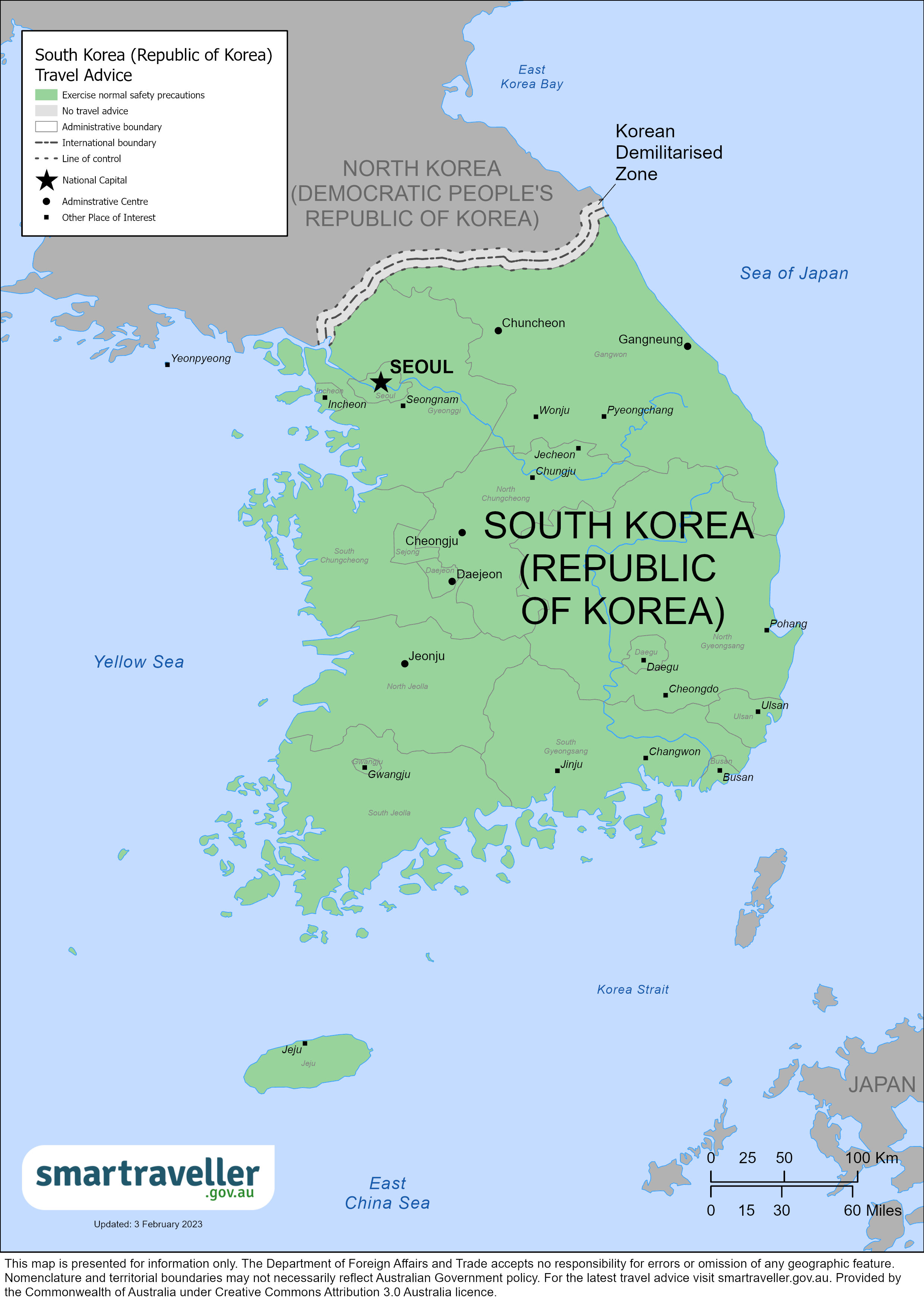
South Korea (PDF 255.07 KB)
Asia (PDF 2.21 MB)
Local emergency contacts
Fire and rescue services, medical emergencies.
Call 119 or go to the hospital.
Call 112 or go to the nearest police station.
Advice levels
- South Korea and North Korea are technically still at war, and tensions have increased in recent times. North Korea periodically conducts missile launches and other provocations. Monitor developments. Consider downloading the South Korean Government's 'Emergency Ready' app.
- Civil emergency drills are held a few times a year for fire, earthquakes, other disasters and civil defence training. Nationwide exercises take place at least twice a year. Regional drills may also be run a few times a year.
- Large-scale public gatherings and protests are common, particularly in Seoul. Protests are generally peaceful and policed but can turn violent.
- Avoid large public gatherings and take extra care in any crowded space. South Korea remains safe for most travellers, with a relatively low crime rate. However, petty crime happens, especially in major cities such as Seoul and Busan. Watch your belongings.
- Sexual assault and harassment, drink spiking and other violent crimes occur, particularly around bars and nightlife areas, such as Itaewon and Hongdae. Don't accept food, drink, gum or cigarettes from strangers. Remain vigilant, take care when walking at night, and travel in groups if possible.
- The rainy season is from late June to late August. Typhoons can happen in August and September. Excessive rain during summer can cause flooding, landslides, and damage to housing and infrastructure. Identify your local shelter (identified by the word 대피소). Follow the advice of local officials.
- Earthquakes and tsunamis are a risk. Know the tsunami warning signs and move to high ground straight away. Don't wait for official alerts, warnings or sirens.
Full travel advice: Safety
- There are high levels of pollution, particularly between March to May. During this time, strong winds from Mongolia and China also carry yellow dust to the Korean Peninsula. This can cause eye, nose, mouth, and throat irritations. Get medical advice if you have heart or breathing problems.
- The standard of medical facilities in South Korea is usually good, but few staff speak English. You'll probably have to pay up-front. Ensure your travel insurance covers all medical costs.
- South Korea is popular for medical tourism. If you're travelling for a procedure, research and choose your medical service providers carefully. Don’t use discount or uncertified providers. Ensure your travel insurance covers complications from surgery.
Full travel advice: Health
- You're required to wear a mask in hospitals. Penalties of up to KRW100,000 apply. Exceptions for mask wearing are made for children under 24 months or people with disabilities, or those who have difficulty wearing a face mask for medical reasons.
- Using shared electric scooters in South Korea is increasing. A driver’s license is required, and you must wear a helmet while riding. Make sure you have adequate health and liability insurance before riding.
- It's illegal to work or volunteer in South Korea if it's not specified in your visa. If you plan to work, arrange a work visa through a South Korean embassy or consulate before you travel.
- Disputes over working and living conditions for Australians teaching English in South Korea are common. Research your employer and employment agency. Get legal advice before you sign a contract.
- Be careful when taking photos and videos. It's illegal to photograph military zones, assets, personnel, and official buildings.
- South Korea recognises dual nationality only in certain circumstances. If you're a male Australian-South Korean dual national, you may have to do military service when you arrive. This could happen even if you travel on your Australian passport. Get advice from an embassy or consulate of the Republic of Korea before travelling.
Full travel advice: Local laws
Australian passport holders can visit South Korea as tourists for stays of up to 90 days without applying for a K-ETA (or visa waiver). Previously approved K-ETA applications will remain valid up to the granted expiry date. Visit the official K-ETA website for more information.
- You may be required to register on the Korean Q-code registration system prior to arrival or to complete a health questionnaire on arrival. Further information is available on the ' Notices ' page. Check with the Republic of Korea Embassy or Consulate for the latest requirements for Australians.
- Entry and exit conditions can change at short notice. You should contact the nearest embassy or consulate of South Korea for the latest details.
Full travel advice: Travel
Local contacts
- The Consular Services Charter details what we can and can't do to help you overseas.
- For consular help, contact the Australian Embassy in Seoul .
- To stay up to date with local information, follow the Embassy’s social media accounts
Full travel advice: Local contacts
Full advice
Regional threats.
South Korea and North Korea are technically still at war, and peace is maintained under a truce agreed at the practical end of the Korean War in 1953. Tensions have increased in recent times.
The Korean Peninsula is divided by a demilitarised zone (DMZ) separating:
- North Korea or the Democratic People's Republic of Korea
- South Korea or the Republic of Korea
North Korea regularly conducts ballistic missile launches and has conducted underground nuclear tests. Low-level military clashes have occurred.
Tensions in the region could further increase without warning.
North Korea may conduct more serious provocations, which could lead to responses from its neighbours and their allies.
The South Korean government has released a free smartphone 'Emergency Ready' app. The app has information on local emergency services, including:
- shelter locations
The app is available for both Apple and Android devices.
To protect yourself from threats in the region:
- monitor developments
- take official warnings seriously
- follow the instructions of local authorities
- consider downloading the 'Emergency Ready' app
Authorities control access to Yeonpyeong Island and other islands near the Northern Limit Line. This is due to their proximity to a disputed sea boundary.
More information:
- Planning for emergencies
Public Safety
Parts of Seoul, particularly Itaewon and Hongdae, and on public transport, can become extremely crowded. In October 2022, more than 150 people were killed in a crowd crush during Halloween festivities in Itaewon. Take extra care in any crowded space. Consider leaving the area if you can.
Civil Emergency Drills
Civil emergency drills are held a few times a year for fire, earthquakes, other disasters and civil defence training.
Nationwide exercises take place at least twice a year. Regional drills may also be run a few times a year.
Depending on the drill, sirens may sound, transport may stop, and authorities may ask people to take shelter in subway stations or basements.
Follow the advice of local authorities. The South Korean government has released a free smartphone 'Emergency Ready' app. The app has information on civil defence drills, including shelters and safety guides.
- Civil Defence Drills
Civil unrest and political tension
Public protests and events that draw large groups of people can turn violent. Avoid large public gatherings and take extra care in any crowded space.
Large-scale public gatherings and demonstrations are common, particularly in Seoul.
To protect yourself during periods of unrest:
- avoid protests and demonstrations
- monitor the media for information
Be prepared to change your travel plans in case of disruptions.
- Demonstrations and civil unrest
For most travellers, South Korea is safe and has a relatively low crime rate. However, petty crime happens, especially in major cities such as Seoul and Busan.
Sexual assault, drink spiking, and other violent crimes occur, particularly around bars and nightlife areas, such as Itaewon and Hongdae.
To protect yourself from crime:
- keep your belongings close
- don't accept drinks, food, gum or cigarettes from strangers
- don't leave food or drinks unattended
- remain vigilant and take care when walking at night
- travel in groups if possible
Local authorities may not always respond adequately or consistently to reports of sexual violence and harassment. If you're sexually assaulted, you should report it immediately to the local authorities and the Australian Embassy in Seoul.
In general, sex-related crimes are not punished as harshly in South Korea as in Australia, and the prosecution process can be challenging for victims.
You can report crimes, including sexual assault, to the police by calling 112. This is a 24/7 service with English interpreters available.
- Partying safely
Cyber security
You may be at risk of cyber-based threats during overseas travel to any country. Digital identity theft is a growing concern. Your devices and personal data can be compromised, especially if you’re connecting to Wi-Fi, using or connecting to shared or public computers or to Bluetooth.
Social media can also be risky in destinations where there are social or political tensions, or laws that may seem unreasonable by Australian standards. Travellers have been arrested for things they have said on social media. Don't comment on local or political events on your social media.
More information:
Cyber security when travelling overseas
Terrorism is a threat worldwide. Although there is no recent history of terrorism in South Korea, attacks can't be ruled out.
You should be aware of the global risk of indiscriminate terrorist attacks, which could be in public areas, including those visited by foreigners.
- Terrorist threats
Climate and natural disasters
South Korea experiences natural disasters and severe weather , such as:
- flooding and landslides
- earthquakes
Get familiar with the advice of local authorities on preparing for a natural disaster or other emergency.
If there's a natural disaster:
- know your hotel or cruise ship evacuation plans
- secure your passport in a safe, waterproof location
- follow the advice of local authorities
- closely monitor the media
- keep in touch with friends and family
Register with the Global Disaster Alert and Coordination System to receive alerts on major disasters.
Typhoons and severe weather
The rainy season is from late June to late August.
Excessive rainfall during summer can cause severe flooding and landslides and damage to housing and infrastructure. Flash flooding can occur after short periods of rain.
Typhoons can happen in August and September.
If there's a typhoon approaching, stay inside. The direction and strength of typhoons can change with little warning.
Identify your closest local shelter if required and follow the directions of local authorities.
Severe weather may also affect:
- access to ports
- road travel and transport
- essential services, such as water and power
If there's a typhoon or severe storm:
- exercise caution
- stay away from affected areas
- you may get stuck in the area
- flights could be delayed or suspended
- available flights may fill quickly
- adequate shelter may not be available
Monitor forecasts and follow instructions of local authorities.
Check with tour operators before travelling to affected areas.
Contact your airline for the latest flight information.
- Korean Meteorological Administration
- Severe Weather Information Centre
- Special weather report - KMA
- Real-time disaster alert – National Disaster and Safety Portal
Earthquakes and tsunamis
Earthquake activity happens on the Korean Peninsula, though less than in Japan and other countries in the region.
Tsunamis are also a risk.
If you are in a coastal region after a major earthquake, move to higher ground straight away.
- Pacific Tsunami Warning Center
- Korea Meteorological Administration
Travel insurance
Get comprehensive travel insurance before you leave.
Your policy needs to cover all overseas medical costs, including medical evacuation. The Australian Government won't pay for these costs.
If you can't afford travel insurance, you can't afford to travel. This applies to everyone, no matter how healthy and fit you are.
If you're not insured, you may have to pay many thousands of dollars up-front for medical care.
- what activities and care your policy covers
- that your insurance covers you for the whole time you'll be away
Physical and mental health
Consider your physical and mental health before you travel, especially if you have an existing medical condition. Treatment for mental health is not widely available in South Korea and is not comparable to services in Australia. There are very few hospitals that have mental health or psychiatric wards attached, and of those available, many will not accept foreigners.
Admission to a mental health or psychiatric ward usually requires proof of a prior mental health diagnosis. For involuntary admissions, 2 family members present in Korea will be required to sign consent. Please consider this when planning your trip.
See your doctor or travel clinic to:
- have a basic health check-up
- ask if your travel plans may affect your health
- plan any vaccinations you need
Do this at least 8 weeks before you leave.
If you have immediate concerns for your welfare, or the welfare of another Australian, call the 24-hour Consular Emergency Centre on +61 2 6261 3305 or contact your nearest Australian Embassy, High Commission or Consulate to discuss counselling hotlines and services available in your location.
- General health advice
- Healthy holiday tips (Healthdirect Australia)
Medications
If you plan to travel with medication, check if it's legal in South Korea. Not all medication available over the counter or by prescription in Australia is available. Some medications may even be considered illegal or a controlled substance in South Korea, even if prescribed by an Australian doctor. Please check with Korean authorities whether your medication is a controlled or illegal substance in South Korea.
Before you travel:
- contact the South Korean Ministry of Food and Drug Safety or email [email protected] to check whether your medication is a controlled or illegal substance in South Korea
- Check with the Korea Customs Service for information on restricted or prohibited items that may not be brought into the country
- ask your doctor about alternative medicines
You may need to apply for a 'bring in' permit. When applying, provide the generic name of the medication, as the brand name may be different in Australia or Korea.
It may take authorities more than 2 weeks to process your application.
Take enough legal medicine for your trip.
Carry a copy of your prescription or a letter from your doctor stating:
- what the medication is
- your required dosage
- that it's for personal use
Health risks
Insect-borne diseases.
Malaria is a risk in:
- the demilitarised zone
- rural areas in the northern parts of Gyonggi and Gangwon provinces
Japanese encephalitis also occurs.
To protect yourself from disease:
- make sure your accommodation is insect-proof
- use insect repellent
- wear long, loose, light-coloured clothing
- get vaccinated against Japanese encephalitis before you travel
- consider taking medicine to prevent malaria
Other health risks
Waterborne, foodborne, and other infectious diseases occur, including:
- tuberculosis
If you test positive for COVID-19 while in South Korea, local authorities recommend isolating for 5 days.
Use normal hygiene precautions, including:
- careful and frequent hand washing
- boil tap water before drinking or cooking
- avoid uncooked and undercooked food.
- seek medical advice if you have a fever or are suffering from diarrhoea
Hand, foot and mouth disease
Hand, foot and mouth disease (HFMD) is common.
Serious outbreaks sometimes occur.
Outbreaks usually start in March and peak in May but can continue until October each year.
The disease mostly affects children aged under 10 years. Adult cases, especially in young adults, are not unusual.
When outside major cities:
- drink boiled water, filtered water or bottled water with sealed lids
- avoid ice cubes
- avoid uncooked and undercooked food, such as salads
Get medical advice if you have a fever or diarrhoea.
Yellow dust
Yellow dust is carried to the Korean Peninsula by strong winds from Mongolia and China from March to May. High levels of airborne pollution occur during this time.
The dust can:
- cause eye, nose, mouth and throat irritations
- make breathing and heart problems worse
If you're concerned about the effects of dust, speak to your doctor before leaving Australia.
Get medical advice if you have allergies or breathing difficulties.
Medical facilities
The standard of medical facilities in South Korea is usually good, but few staff speak English.
Medical services can be expensive. Hospitals usually require an up-front deposit or confirmation of insurance before they'll treat you.
- Medical tourism
South Korea is a popular destination for medical tourism.
To protect yourself:
- research and choose your medical service providers carefully
- avoid discounted or uncertified medical service providers
Check whether your travel insurance covers you if things go wrong with your surgery. Most insurers don't.
You're subject to all local laws and penalties, including those that may appear harsh by Australian standards. Research local laws before travelling.
You're required to wear a mask in hospitals. Penalties of up to KRW100,000 apply. Exceptions for mask wearing are made for children under 24 months or people with disabilities, or those who may have difficulty wearing a face mask for medical reasons.
The use of shared electric scooters in South Korea is increasing. A driver’s license is not required, but you must wear a helmet while riding. Riders must be aged 13 years or older.
If you're arrested or jailed, the Australian Government will do what it can to help you under our Consular Services Charter . But we can't get you out of trouble or out of jail.
Don't carry or consume illegal drugs.
Penalties for possession, use or trafficking of illegal drugs include:
- long jail sentences
- heavy fines
- deportation
- Carrying or using drugs
It's illegal to work in South Korea if it's not specified in your visa. This includes paid and unpaid work.
Authorities have fined, detained and deported Australians for breaching their visa conditions.
It's difficult to change your visa type once you're in South Korea.
If you plan to work, arrange a work visa through a South Korean embassy or consulate before you travel.
Disputes over expected working and living conditions for Australians teaching English in South Korea are common.
Some Australians planning to teach English have faced penalties after they or their employment agent gave false documents to Korean immigration authorities.
If you're employed without the right visa, your options will be limited under Korean law.
If you're considering teaching English in South Korea:
- research your employer and employment agent
- consider getting legal advice before you sign a contract
- make sure your visa application is truthful and accurate
Serious crimes, such as murder, may attract the death penalty.
It's illegal to take photos of and around:
- military zones, assets or personnel
- official buildings
South Korea has strict anti-corruption laws for public officials. Public officials and their spouses can't accept meals, gifts or other benefits above set limits.
'Public officials' include:
- journalists
- employees of government-owned or funded companies
Get legal advice to make sure you don't breach these laws.
If you're involved in a commercial or legal dispute, authorities could stop you from leaving.
Australian laws
Some Australian criminal laws still apply when you're overseas. If you break these laws, you may face prosecution in Australia.
- Staying within the law
Dual citizenship
South Korea recognises dual nationality only in certain circumstances.
It's possible that by applying for Australian Citizenship by Descent or by Conferral, you may lose your Korean citizenship.
If you've been arrested or detained and have Korean citizenship, we may only be able to provide limited consular help.
If you were born in South Korea or have Korean citizenship, you will continue to be a Korean citizen unless you:
- formally renounce it; and
- remove your name from the Korean family register
Military service is compulsory for male citizens of South Korea, including dual nationals.
The South Korean government may require you to undertake military service if you:
- are male; and
- are listed on the Korean family register
This is the case even if you're travelling on your Australian passport.
The government may not allow you to renounce your Korean nationality or leave the country until you either:
- complete your military service, or
- receive a special exemption from serving
If you're an Australian-South Korean dual national, get advice from an embassy or consulate of the Republic of Korea before you travel.
Contact the Korean Immigration Service for information on Korea’s law on dual citizenship.
- Dual nationals
Visas and border measures
Every country or territory decides who can enter or leave through its borders. For specific information about the evidence you'll need to enter a foreign destination, check with the nearest embassy, consulate or immigration department of the destination you're entering.
Long-term visa holders residing in South Korea must apply for a re-entry permit before leaving South Korea. If you leave South Korea without a re-entry permit, your Alien Registration Card may be cancelled and you'll need to apply for a new long-term visa to enter. If you hold an A1, A2, A3 or F4 visa, you're exempt from requiring a re-entry permit.
To apply for a re-entry permit, visit a local immigration office, including at an airport sea port. If you apply at an airport immigration office on your way out of South Korea, ensure you arrive earlier than usual to the airport.
Further information about re-entry permits and medical examination requirements is available from the Korean Ministry of Justice .
Entry and exit conditions can change at short notice. Contact the nearest embassy or consulate of the Republic of Korea for details about visas, currency, customs and quarantine rules.
Border measures
If you're travelling to South Korea, you may be required to register your information on the Korean Q-code registration system to receive a generated QR code for your arrival. Or complete a health questionnaire on arrival if you haven't registered online.
You should also check the Korean Q-code registration system prior to travelling to South Korea, as countries listed as "Quarantine Inspection Required Areas" may change without notice.
When you arrive in South Korea you may need to:
- Complete a health status document.
- Provide contact details (mobile phone number and address). Your phone number will be verified on arrival, and you won’t be able to enter Korea with invalid contact details.
- Be screened for high body temperature.
Contact the Korean Embassy or Consulate in Australia for more information when planning your travel and to confirm requirements.
Other formalities
You'll be fingerprinted when you arrive.
All passengers arriving at South Korean airports are screened for infectious diseases, including:
- Middle East respiratory syndrome coronavirus (MERS-CoV)
Extra quarantine checks are in place for flights from high-risk areas.
Korean Government Agencies
- Korea Disease Control & Prevention Agency (KDCA)
- Ministry of Health and Welfare
- Ministry of Employment and Labor
- Ministry of Education
- Ministry of Gender Equality and Family
- Ministry of the Interior and Safety
- Ministry of Economy and Finance
Some countries won't let you enter unless your passport is valid for 6 months after you plan to leave that country. This can apply even if you're just transiting or stopping over.
Some foreign governments and airlines apply the rule inconsistently. Travellers can receive conflicting advice from different sources.
You can end up stranded if your passport is not valid for more than 6 months.
The Australian Government does not set these rules. Check your passport's expiry date before you travel. If you're not sure it'll be valid for long enough, consider getting a new passport .
Lost or stolen passport
Your passport is a valuable document. It's attractive to people who may try to use your identity to commit crimes.
Some people may try to trick you into giving them your passport. Always keep it in a safe place.
If your passport is lost or stolen, tell the Australian Government as soon as possible:
- In Australia, contact the Australian Passport Information Service .
- If you're overseas, contact the nearest Australian embassy or consulate.
Passport with ‘X’ gender identifier
Although Australian passports comply with international standards for sex and gender, we can’t guarantee that a passport showing 'X' in the sex field will be accepted for entry or transit by another country. Contact the nearest embassy, high commission or consulate of your destination before you arrive at the border to confirm if authorities will accept passports with 'X' gender markers.
- LGBTI travellers
The local currency is the Korean Won (KRW).
You can change Australian dollars for KRW at local banks and money changers.
Declare all local currency over 8 million KRW or $US10,000 or equivalent in foreign currency on arrival. This includes all forms of currency, not just cash.
ATMs are available in cities and larger towns but may not accept some debit cards.
Credit cards are usually accepted in hotels, restaurants, shops, and taxis, particularly in cities and larger towns.
Be aware of card skimming. See Safety
Local travel
Driving permit.
To drive, you'll need either:
- a valid local licence, or
- an International Driver's Permit (IDP) and a valid Australian driver's licence
Get your IDP before your leave Australia.
You need a Korean driver's licence to drive if you'll stay 90 days or more.
You will need a certified copy of your Australian licence to apply for a Korean driver's licence.
When issuing you with a Korean driver's licence, the local authorities will normally keep your Australian driver's licence. They will return your Australian licence to you in exchange for your Korean driver's licence before you depart Korea.
- Seoul Global Centre
Road travel
South Korea has one of the highest rates of traffic deaths for a developed country, especially for pedestrians.
You're more likely to die in a motor vehicle accident in South Korea than in Australia.
Speeding, running red lights and other risky behaviour is common, especially by buses, taxis and motorcyclists.
Motorcyclists often travel on footpaths and pedestrian crossings.
If you're involved in an accident, whether or not you're at fault, you could face criminal charges. You may need to pay compensation to the injured person.
The blood alcohol limit for drivers is 0.03%. Heavy penalties apply for exceeding the limit. Don't drink drive.
If you're walking:
- look out for motorcyclists, even on footpaths and pedestrian crossings
- don't expect traffic to stop at pedestrian crossings
- check carefully before stepping onto the road
Before travelling by road, learn local road rules and practices.
- Driving or riding
Motorcycles
Check if your travel insurance policy covers you when riding a motorbike. Most policies won't cover you if you don't follow local laws or wear a helmet.
Always wear a helmet.
There are restrictions on riding motorcycles on highways and other major roads.
Use only authorised taxis, preferably those arranged through your hotel.
Always insist the driver uses the meter. Most taxis accept credit cards.
Rideshare apps are available in South Korea. These aren't widely used due to the large number of available taxis.
International taxi services are available and may have English-speaking drivers.
Public transport
Public transportation (including buses and metropolitan subway networks) in and between major urban areas is good.
Most major transportation systems have signs and make announcements in English.
- Visit Korea
- Transport and getting around safely
Rail travel
South Korea has a large high-speed rail network (KTX).
Stations are usually located in major urban areas. They usually have signs in English.
They're often linked to local taxi or public transport networks.
Ferry services operate between most large coastal cities and other domestic and international ports.
Busan is a regular stopover location for cruises.
- Going on a cruise
- Travelling by boat
Many airlines and travel providers don't allow you to pay for flights online within South Korea with a foreign credit card.
DFAT doesn't provide information on the safety of individual commercial airlines or flight paths.
Check South Korea's air safety profile with the Aviation Safety Network.
Emergencies
Depending on what you need, contact your:
- family and friends
- travel agent
- insurance provider
To report a crime, call 112 or go to the nearest police station. This is a 24/7 service with English interpreters available.
Always get a police report when you report a crime.
If you have lost any property, visit the Lost112 website for more information.
- Korea Disease Control & Prevention (KDCA)
Consular contacts
Read the Consular Services Charter for what the Australian Government can and can't do to help you overseas.
For consular help, contact the Australian Embassy in Seoul.
Australian Embassy, Seoul
19th Floor, Kyobo Building 1, Jong-ro Jongno-gu Seoul 03154, Republic of Korea Phone: (+82 2) 2003 0100 Fax: (+82 2) 2003 0196 Website: southkorea.embassy.gov.au Facebook: Australia in the Republic of Korea Instagram: @AusAmbKor
Check the Embassy website for details about opening hours and any temporary closures.
24-hour Consular Emergency Centre
In a consular emergency, if you can't contact an embassy, call the 24-hour Consular Emergency Centre on:
- +61 2 6261 3305 from overseas
- 1300 555 135 in Australia

Travelling to South Korea?
Sign up to get the latest travel advice updates..
Be the first to know official government advice when travelling.
- Skip to main content
- Skip to "About this site"
Language selection
Search travel.gc.ca.
Help us to improve our website. Take our survey !
COVID-19: travel health notice for all travellers
South Korea travel advice
Latest updates: The Health section was updated - travel health information (Public Health Agency of Canada)
Last updated: March 13, 2024 14:10 ET
On this page
Safety and security, entry and exit requirements, laws and culture, natural disasters and climate, south korea - take normal security precautions.
Take normal security precautions in South Korea
Back to top
Tensions on the Korean Peninsula
Tensions on the Korean Peninsula could escalate with little notice and the security situation could deteriorate suddenly. Tensions may increase before, during and after North Korean nuclear and missile tests, military exercises or as the result of incidents or military activities at or near the inter-Korean border.
Monitor developments, remain vigilant and follow the instructions of local authorities. We strongly recommend that Canadians register with the Registration of Canadians Abroad service to receive the latest updates.
Registration of Canadians Abroad
Crime against foreigners is generally low. Petty crime occurs in major metropolitan areas, tourist sites and public markets. Remain aware of your surroundings in crowded entertainment, nightlife and shopping districts.
Petty crime and sexual harassment can occur in public spaces including bars and restaurants, and on buses.
- Avoid walking alone, especially after dark.
- Ensure that your personal belongings, including your passport and other travel documents, are secure at all times.
You can report crimes, including a sexual assault, to the Korean National Police Agency by dialling 112. This is a 24-hour, 7-day-a-week service. For non-Korean speakers, the police will link an interpreter into the call.
Women’s safety
Women travelling alone may be subject to certain forms of harassment. Sexual assault and harassment do occur, particularly around bars and nightlife areas, such as Itaewon and Hongdae-Ipgu.
Local authorities may not always respond adequately to reports of sexual violence and harassment. If you are sexually assaulted, you should report it immediately to local authorities and to the nearest Canadian government office.
- Avoid travelling alone, especially at night
- Remain vigilant
- Be careful when dealing with strangers or recent acquaintances
Advice for women travellers
Demonstrations
Political, labour and student demonstrations and marches may occur. Even peaceful demonstrations can turn violent at any time. They can lead to significant disruptions to traffic and public transportation.
- Avoid areas where demonstrations and large gatherings are taking place
- Follow the instructions of local authorities
- Monitor local media for information on ongoing demonstrations
Mass gatherings (large-scale events)
Civil emergency exercises
Civil emergency exercises are held for fires, earthquakes, other disasters and civil defence drills by the Ministry of the Interior and Safety.
In 2024, four exercises will take place in March, May, August and October. The exercise on August 21, 2024, will be a nationwide exercise. Depending on the exercise, sirens may sound, transport may stop and authorities may ask some people to take shelter in metro stations or basements. While visitor participation is not necessary, familiarize yourself with procedures and check local announcements for further exercises.
Useful links
- Ministry of the Interior and Safety
- National Disaster and Safety Portal
Emergency assistance mobile application
The Ministry of the Interior and Safety offers a free emergency assistance mobile application called Emergency Ready (available on Google Play and iTunes). The app allows users to contact emergency services, locate the closest medical centre or shelter and view first aid videos.
- Emergency Ready App - Google Play
- Emergency Ready - iTunes
Road safety
The rate of fatal road accidents is very high. Check carefully before crossing the road. Vehicles may not stop at pedestrian crossings. Use underground or above-ground pedestrian crossings, where available.
Speeding, running red lights, lane changes without signalling and other risky driving behaviours are common, particularly by buses, taxis and motorcyclists. Motorcycles are sometimes driven on sidewalks.
Automobile drivers are presumed to be at fault in accidents involving motorcycles or pedestrians. Criminal charges and heavy penalties are common when accidents result in injury. Even if negligence is not proven, you may be subject to criminal charges.
Public transportation
The use of public transport after dark may be safer than using taxis when travelling alone. When subway and bus services end for the night, use officially marked taxis only. It is mandatory to fasten your seatbelt in a taxi. Drivers may speak some English, but have your destination written in Korean.
High-speed train services (KTX and SRT) link Seoul and major southern cities such as Busan, Gwangju and Mokpo.
- Book high-speed train tickets – Korail
- Book high-speed train tickets – SRT
We do not make assessments on the compliance of foreign domestic airlines with international safety standards.
Information about foreign domestic airlines
Every country or territory decides who can enter or exit through its borders. The Government of Canada cannot intervene on your behalf if you do not meet your destination’s entry or exit requirements.
We have obtained the information on this page from the South Korean authorities. It can, however, change at any time.
Verify this information with the Foreign Representatives in Canada .
Entry requirements vary depending on the type of passport you use for travel.
Before you travel, check with your transportation company about passport requirements. Its rules on passport validity may be more stringent than the country’s entry rules.
Regular Canadian passport
Your passport must be valid beyond the date of expected departure from South Korea.
Passport for official travel
Different entry rules may apply.
Official travel
Passport with “X” gender identifier
While the Government of Canada issues passports with an “X” gender identifier, it cannot guarantee your entry or transit through other countries. You might face entry restrictions in countries that do not recognize the “X” gender identifier. Before you leave, check with the closest foreign representative for your destination.
Other travel documents
Different entry rules may apply when travelling with a temporary passport or an emergency travel document. Before you leave, check with the closest foreign representative for your destination.
- Foreign Representatives in Canada
- Canadian passports
Tourist visa: not required* Business visa: not required* Student visa: required (must be obtained outside South Korea) Working visa: required (must be obtained outside South Korea)
*Canadians are exempt from the Korea Electronic Travel Authority (K-ETA) requirement to visit South Korea until December 31, 2024.
You can't change your visa status once you're in South Korea.
If you wish to extend the length of your visa, contact the Korea Immigration Service as soon as possible to apply for an extension. Authorities strictly enforce immigration laws and regulations.
- Korea Electronic Travel Authority (K-ETA) – Ministry of Justice, Republic of Korea
- More information about visas – Korea Immigration Service
Foreigners must register their biometrics (fingerprints and facial scan) at their port of entry. Children younger than 17 years and diplomats are exempt from this screening.
Screening measures
The Korea Immigration Service will screen your body temperature upon your arrival at the airport. They may test you for infectious diseases including cholera and Zika virus. In some cases, authorities may quarantine you for medical observation if you show flu-like symptoms or test positive for an infectious disease.
Children and travel
Learn more about travelling with children .
Yellow fever
Learn about potential entry requirements related to yellow fever (vaccines section).
Relevant Travel Health Notices
- Global Measles Notice - 13 March, 2024
- COVID-19 and International Travel - 13 March, 2024
- Mpox (monkeypox): Advice for travellers - 20 February, 2024
This section contains information on possible health risks and restrictions regularly found or ongoing in the destination. Follow this advice to lower your risk of becoming ill while travelling. Not all risks are listed below.
Consult a health care professional or visit a travel health clinic preferably 6 weeks before you travel to get personalized health advice and recommendations.
Routine vaccines
Be sure that your routine vaccinations , as per your province or territory , are up-to-date before travelling, regardless of your destination.
Some of these vaccinations include measles-mumps-rubella (MMR), diphtheria, tetanus, pertussis, polio, varicella (chickenpox), influenza and others.
Pre-travel vaccines and medications
You may be at risk for preventable diseases while travelling in this destination. Talk to a travel health professional about which medications or vaccines may be right for you, based on your destination and itinerary.
Yellow fever is a disease caused by a flavivirus from the bite of an infected mosquito.
Travellers get vaccinated either because it is required to enter a country or because it is recommended for their protection.
- There is no risk of yellow fever in this country.
Country Entry Requirement*
- Proof of vaccination is not required to enter this country.
Recommendation
- Vaccination is not recommended.
* It is important to note that country entry requirements may not reflect your risk of yellow fever at your destination. It is recommended that you contact the nearest diplomatic or consular office of the destination(s) you will be visiting to verify any additional entry requirements.
About Yellow Fever
Yellow Fever Vaccination Centres in Canada
There is a risk of hepatitis A in this destination. It is a disease of the liver. People can get hepatitis A if they ingest contaminated food or water, eat foods prepared by an infectious person, or if they have close physical contact (such as oral-anal sex) with an infectious person, although casual contact among people does not spread the virus.
Practise safe food and water precautions and wash your hands often. Vaccination is recommended for all travellers to areas where hepatitis A is present.
Tick-borne encephalitis (TBE) is a risk in some areas of this destination. It is a viral disease that affects the central nervous system (brain and spinal cord). It is spread to humans by the bite of infected ticks or occasionally when unpasteurized milk products are consumed.
Travellers to areas where TBE is found may be at higher risk during April to November, and the risk is highest for people who hike or camp in forested areas.
Protect yourself from tick bites . The vaccine is not available in Canada. It may be available in the destination you are travelling to.
Measles is a highly contagious viral disease. It can spread quickly from person to person by direct contact and through droplets in the air.
Anyone who is not protected against measles is at risk of being infected with it when travelling internationally.
Regardless of where you are going, talk to a health care professional before travelling to make sure you are fully protected against measles.
Japanese encephalitis is a viral infection that can cause swelling of the brain. It is spread to humans through the bite of an infected mosquito. Risk is very low for most travellers. Travellers at relatively higher risk may want to consider vaccination for JE prior to travelling.
Travellers are at higher risk if they will be:
- travelling long term (e.g. more than 30 days)
- making multiple trips to endemic areas
- staying for extended periods in rural areas
- visiting an area suffering a JE outbreak
- engaging in activities involving high contact with mosquitos (e.g., entomologists)
Hepatitis B is a risk in every destination. It is a viral liver disease that is easily transmitted from one person to another through exposure to blood and body fluids containing the hepatitis B virus. Travellers who may be exposed to blood or other bodily fluids (e.g., through sexual contact, medical treatment, sharing needles, tattooing, acupuncture or occupational exposure) are at higher risk of getting hepatitis B.
Hepatitis B vaccination is recommended for all travellers. Prevent hepatitis B infection by practicing safe sex, only using new and sterile drug equipment, and only getting tattoos and piercings in settings that follow public health regulations and standards.
The best way to protect yourself from seasonal influenza (flu) is to get vaccinated every year. Get the flu shot at least 2 weeks before travelling.
The flu occurs worldwide.
- In the Northern Hemisphere, the flu season usually runs from November to April.
- In the Southern Hemisphere, the flu season usually runs between April and October.
- In the tropics, there is flu activity year round.
The flu vaccine available in one hemisphere may only offer partial protection against the flu in the other hemisphere.
The flu virus spreads from person to person when they cough or sneeze or by touching objects and surfaces that have been contaminated with the virus. Clean your hands often and wear a mask if you have a fever or respiratory symptoms.
Coronavirus disease (COVID-19) is an infectious viral disease. It can spread from person to person by direct contact and through droplets in the air.
It is recommended that all eligible travellers complete a COVID-19 vaccine series along with any additional recommended doses in Canada before travelling. Evidence shows that vaccines are very effective at preventing severe illness, hospitalization and death from COVID-19. While vaccination provides better protection against serious illness, you may still be at risk of infection from the virus that causes COVID-19. Anyone who has not completed a vaccine series is at increased risk of being infected with the virus that causes COVID-19 and is at greater risk for severe disease when travelling internationally.
Before travelling, verify your destination’s COVID-19 vaccination entry/exit requirements. Regardless of where you are going, talk to a health care professional before travelling to make sure you are adequately protected against COVID-19.
Malaria is a serious and sometimes fatal disease that is caused by parasites spread through the bites of mosquitoes. Limited malaria transmission may occur in this destination, but risk to travellers is very low. Antimalarial medication is not recommended for most travellers. Consult a health care professional or visit a travel health clinic before travelling to discuss your options. It is recommended to do this 6 weeks before travel, however, it is still a good idea any time before leaving. Protect yourself from mosquito bites at all times:
- Cover your skin and use an approved insect repellent on uncovered skin.
- Exclude mosquitoes from your living area with screening and/or closed, well-sealed doors and windows.
- Use insecticide-treated bed nets if mosquitoes cannot be excluded from your living area.
- Wear permethrin-treated clothing.
If you develop symptoms similar to malaria when you are travelling or up to a year after you return home, see a health care professional immediately. Tell them where you have been travelling or living.
In this destination, rabies may be present in some wildlife species, including bats. Rabies is a deadly disease that spreads to humans primarily through bites or scratches from an infected animal.
If you are bitten or scratched by an animal while travelling, immediately wash the wound with soap and clean water and see a health care professional.
Before travel, discuss rabies vaccination with a health care professional. It may be recommended for travellers who will be working directly with wildlife.
Safe food and water precautions
Many illnesses can be caused by eating food or drinking beverages contaminated by bacteria, parasites, toxins, or viruses, or by swimming or bathing in contaminated water.
- Learn more about food and water precautions to take to avoid getting sick by visiting our eat and drink safely abroad page. Remember: Boil it, cook it, peel it, or leave it!
- Avoid getting water into your eyes, mouth or nose when swimming or participating in activities in freshwater (streams, canals, lakes), particularly after flooding or heavy rain. Water may look clean but could still be polluted or contaminated.
- Avoid inhaling or swallowing water while bathing, showering, or swimming in pools or hot tubs.
Typhoid is a bacterial infection spread by contaminated food or water. Risk is higher among children, travellers going to rural areas, travellers visiting friends and relatives or those travelling for a long period of time.
Travellers visiting regions with a risk of typhoid, especially those exposed to places with poor sanitation, should speak to a health care professional about vaccination.
Insect bite prevention
Many diseases are spread by the bites of infected insects such as mosquitoes, ticks, fleas or flies. When travelling to areas where infected insects may be present:
- Use insect repellent (bug spray) on exposed skin
- Cover up with light-coloured, loose clothes made of tightly woven materials such as nylon or polyester
- Minimize exposure to insects
- Use mosquito netting when sleeping outdoors or in buildings that are not fully enclosed
To learn more about how you can reduce your risk of infection and disease caused by bites, both at home and abroad, visit our insect bite prevention page.
Find out what types of insects are present where you’re travelling, when they’re most active, and the symptoms of the diseases they spread.
There is a risk of chikungunya in this country. The risk may vary between regions of a country. Chikungunya is a virus spread through the bite of an infected mosquito. Chikungunya can cause a viral disease that typically causes fever and pain in the joints. In some cases, the joint pain can be severe and last for months or years.
Protect yourself from mosquito bites at all times. There is no vaccine available for chikungunya.
Animal precautions
Some infections, such as rabies and influenza, can be shared between humans and animals. Certain types of activities may increase your chance of contact with animals, such as travelling in rural or forested areas, camping, hiking, and visiting wet markets (places where live animals are slaughtered and sold) or caves.
Travellers are cautioned to avoid contact with animals, including dogs, livestock (pigs, cows), monkeys, snakes, rodents, birds, and bats, and to avoid eating undercooked wild game.
Closely supervise children, as they are more likely to come in contact with animals.
Person-to-person infections
Stay home if you’re sick and practise proper cough and sneeze etiquette , which includes coughing or sneezing into a tissue or the bend of your arm, not your hand. Reduce your risk of colds, the flu and other illnesses by:
- washing your hands often
- avoiding or limiting the amount of time spent in closed spaces, crowded places, or at large-scale events (concerts, sporting events, rallies)
- avoiding close physical contact with people who may be showing symptoms of illness
Sexually transmitted infections (STIs) , HIV , and mpox are spread through blood and bodily fluids; use condoms, practise safe sex, and limit your number of sexual partners. Check with your local public health authority pre-travel to determine your eligibility for mpox vaccine.
Tuberculosis is an infection caused by bacteria and usually affects the lungs.
For most travellers the risk of tuberculosis is low.
Travellers who may be at high risk while travelling in regions with risk of tuberculosis should discuss pre- and post-travel options with a health care professional.
High-risk travellers include those visiting or working in prisons, refugee camps, homeless shelters, or hospitals, or travellers visiting friends and relatives.
Medical services and facilities
Medical services and facilities meet Canadian standards. Private hospitals and clinics located in cities are often better staffed and equipped than public or rural facilities. Payment is expected at time of service. Korean medical institutions will not charge insurance companies directly.
Make sure you get travel insurance that includes coverage for medical evacuation and hospital stays.
Travel health and safety
Keep in Mind...
The decision to travel is the sole responsibility of the traveller. The traveller is also responsible for his or her own personal safety.
Be prepared. Do not expect medical services to be the same as in Canada. Pack a travel health kit , especially if you will be travelling away from major city centres.
You must abide by local laws.
Learn about what you should do and how we can help if you are arrested or detained abroad .
Police may confiscate your passport and/or detain you during an investigation.
Overview of the criminal law system in South Korea
Penalties for possession, use or trafficking of illegal drugs are severe. Convicted offenders can expect long jail sentences, heavy fines and deportation. Minor violations, including smoking small quantities of an illegal drug such as cannabis (even in a private home) can result in pre-trial detention.
Drugs, alcohol and travel
Support for anti-government organizations
South Korea’s National Security Law prohibits statements and materials that praise anti-government organizations.
Photography
Photography of military installations and government buildings is illegal.
You must carry an International Driving Permit or a South Korean driver’s licence.
Penalties for drinking and driving are severe. The legal blood alcohol limit is 0.03%. If the police suspect you of drinking and driving, they could confiscate your driver’s licence on the spot. If you’re convicted, you can expect heavy fines and a jail sentence.
International Driving Permit
Teaching English
Carefully review any contract to teach English in South Korea before signing it, even when arranged by a Canadian recruiter. There have been reports that some contracts have been modified after the fact. Ensure that all terms and conditions of employment are clear before accepting an offer. Ensure that you meet all the necessary requirements.
The Korean government investigates the use of fraudulent documents, degrees and English-as-a-second-language (ESL) certificates. Penalties for using fraudulent documents include arrest, deportation and restrictions on re-entry. Be aware that written contracts may not be binding documents. Verbal agreements often take precedence over written agreements.
Guide for teaching English in Korea
Dual citizenship
South Korea legally recognizes dual citizenship. If you’re a citizen of Canada, but also a citizen of South Korea, our ability to offer you consular services may be limited while you’re there. You may also be subject to different entry/exit requirements.
The South Korean government considers children born from a Korean and a non-Korean parent to be South Korean citizens until age 18, even if they weren’t born in South Korea. Former Koreans over 65 who wish to live their remaining years in South Korea may be granted citizenship.
A male dual citizen whose name appears on the Korean family relation certificate may be subject to compulsory military service, even when entering South Korea on a Canadian passport. Before travelling to South Korea, Canadian males of Korean origin may need to renounce their Korean citizenship or have their names removed from the Korean family relation certificate to avoid this requirement.
Korean authorities will only recognize you as a Canadian-South Korean citizen if you meet certain criteria. If you think you may have a claim to South Korean citizenship, contact the Embassy of the Republic of Korea or one of its consulates.
- Entry/exit requirements
- Foreign diplomatic missions and consulates in Canada
- General information for travellers with dual citizenship
International Child Abduction
The Hague Convention on the Civil Aspects of International Child Abduction is an international treaty. It can help parents with the return of children who have been removed to or retained in certain countries in violation of custody rights. The convention applies between Canada and South Korea.
If your child was wrongfully taken to, or is being held in South Korea, and if the applicable conditions are met, you may apply for the return of your child to the South Korean court.
If you are in this situation:
- act as quickly as you can
- contact the Central Authority for your province or territory of residence for information on starting an application under The Hague Convention
- consult a lawyer in Canada and in South Korea to explore all the legal options for the return of your child
- report the situation to the nearest Canadian government office abroad or to the Vulnerable Children’s Consular Unit at Global Affairs Canada by calling the Emergency Watch and Response Centre
If your child was removed from a country other than Canada, consult a lawyer to determine if The Hague Convention applies.
Be aware that Canadian consular officials cannot interfere in private legal matters or in another country’s judicial affairs.
- List of Canadian Central Authorities for the Hague Convention
- International Child Abduction: A Guidebook for Left-Behind Parents
- Travelling with children
- The Hague Convention - Hague Conference on Private International Law
- Canadian embassies and consulates by destination
- Emergency Watch and Response Centre
2SLGBTQI+ travellers
Although the laws of South Korea do not prohibit sexual acts between individuals of the same sex, homosexuality is not socially tolerated. Same sex marriages are not legally recognised in South Korea.
2SLGBTQI+ travellers should carefully consider the risks of travelling to South Korea.
Travel and your sexual orientation, gender identity, gender expression and sex characteristics
The currency in South Korea is the won (KRW). Some major banks have ATMs that accept international debit or credit cards. The amount allowed per withdrawal may be quite low, making the service charge excessive. Most ATMs that allow withdrawal of money from Canadian bank accounts offer English instructions.
Rainy and typhoon seasons
The rainy season extends from late June until August. July is usually the wettest month. Severe rainstorms can cause flooding and landslides.
Typhoons occur in August and September. These severe storms can cause significant loss of life and extensive damage to infrastructure. They can hamper the provision of essential services.
If you decide to travel to South Korea during the rainy or typhoon seasons:
- know that you expose yourself to serious safety risks
- be prepared to change your travel plans on short notice, including cutting short or cancelling your trip
- stay informed of the latest regional weather forecasts
- carry emergency contact information for your airline or tour operator
- follow the advice and instructions of local authorities
- Korea Meteorological Administration
- Tornadoes, cyclones, hurricanes, typhoons and monsoons
- Large-scale emergencies abroad
Air pollution
Air pollution, including yellow dust pollution, is common in South Korea throughout the year and especially in March, April and May.
Air pollution in South Korea - World Air Quality Index
Wildfires are common in the spring months, but are generally contained within inaccessible areas. The air quality in areas near active fires may deteriorate due to heavy smoke. In case of a major fire:
- stay away from the affected area, particularly if you suffer from respiratory ailments
- follow the instructions of local emergency services personnel
- monitor local media for up-to-date information on the situation
- National Fire Agency - Korean Ministry of the Interior and Safety
- Korea Forest Service - Ministry for Agriculture, Food and Rural Affairs
Local services
In case of emergency, dial:
- police: 112
- medical assistance: 119
- firefighters: 119
An English interpretation service is available.
Consular assistance
For emergency consular assistance, call the Embassy of Canada to South Korea and follow the instructions. At any time, you may also contact the Emergency Watch and Response Centre in Ottawa.
The decision to travel is your choice and you are responsible for your personal safety abroad. We take the safety and security of Canadians abroad very seriously and provide credible and timely information in our Travel Advice to enable you to make well-informed decisions regarding your travel abroad.
The content on this page is provided for information only. While we make every effort to give you correct information, it is provided on an "as is" basis without warranty of any kind, expressed or implied. The Government of Canada does not assume responsibility and will not be liable for any damages in connection to the information provided.
If you need consular assistance while abroad, we will make every effort to help you. However, there may be constraints that will limit the ability of the Government of Canada to provide services.
Learn more about consular services .
Risk Levels
take normal security precautions.
Take similar precautions to those you would take in Canada.
Exercise a high degree of caution
There are certain safety and security concerns or the situation could change quickly. Be very cautious at all times, monitor local media and follow the instructions of local authorities.
IMPORTANT: The two levels below are official Government of Canada Travel Advisories and are issued when the safety and security of Canadians travelling or living in the country or region may be at risk.
Avoid non-essential travel
Your safety and security could be at risk. You should think about your need to travel to this country, territory or region based on family or business requirements, knowledge of or familiarity with the region, and other factors. If you are already there, think about whether you really need to be there. If you do not need to be there, you should think about leaving.
Avoid all travel
You should not travel to this country, territory or region. Your personal safety and security are at great risk. If you are already there, you should think about leaving if it is safe to do so.
Situation in Haiti March 29, 2024
U.s. citizens in haiti, update january 10, 2024, information for u.s. citizens in the middle east.
- Travel Advisories |
- Contact Us |
- MyTravelGov |
Find U.S. Embassies & Consulates
Travel.state.gov, congressional liaison, special issuance agency, u.s. passports, international travel, intercountry adoption, international parental child abduction, records and authentications, popular links, travel advisories, mytravelgov, stay connected, legal resources, legal information, info for u.s. law enforcement, replace or certify documents.
Share this page:
South Korea Travel Advisory
Travel advisory july 24, 2023, south korea - level 1: exercise normal precautions.
Reissued with obsolete COVID-19 page links removed.
Exercise normal precautions in South Korea.
Read the country information page for additional information on travel to South Korea.
If you decide to travel to South Korea:
- Enroll in the Smart Traveler Enrollment Program (STEP) to receive Alerts and make it easier to locate you in an emergency.
- Follow the Department of State on Facebook and Twitter .
- Review the Country Security Report for South Korea.
- Visit the CDC page for the latest Travel Health Information related to your travel.
- Prepare a contingency plan for emergency situations. Review the Traveler’s Checklist .
Travel Advisory Levels
Assistance for u.s. citizens, south korea map, search for travel advisories, external link.
You are about to leave travel.state.gov for an external website that is not maintained by the U.S. Department of State.
Links to external websites are provided as a convenience and should not be construed as an endorsement by the U.S. Department of State of the views or products contained therein. If you wish to remain on travel.state.gov, click the "cancel" message.
You are about to visit:
We’re sorry, this site is currently experiencing technical difficulties. Please try again in a few moments. Exception: request blocked
South Korea to lift quarantine mandate and COVID test recommendation for travelers
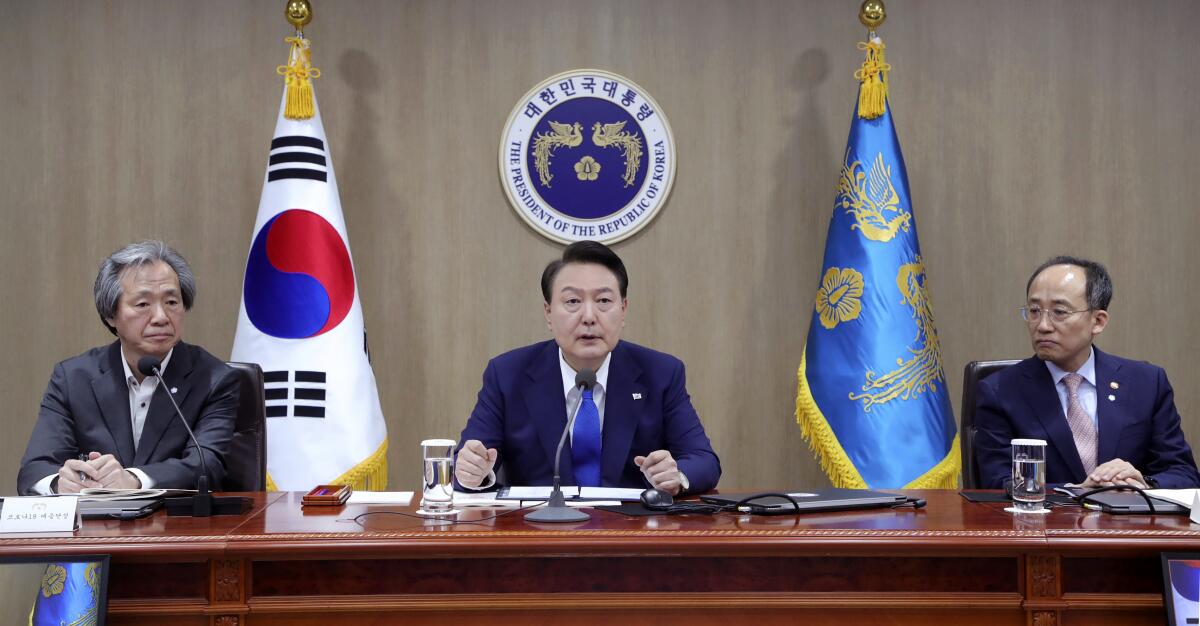
- Show more sharing options
- Copy Link URL Copied!
South Korea will drop its COVID-19 quarantine requirements and end coronavirus testing recommendations for international arrivals starting next month after the World Health Organization declared the end of the global health emergency .
In lowering the coronavirus alert level from “critical” to just “alert” starting June 1, health authorities will also lift mask mandates in pharmacies and small clinics but will continue require mask-wearing in large hospitals, long-term care facilities and other medical venues with high infection risks.
The decision was announced during a meeting attended by President Yoon Suk-yeol, at which he thanked the country’s medical workers and said it was “delightful that people are getting their normal lives back after 3½ years.”
He said his government would take steps to improve the country’s capacity to deal with future pandemics, including providing stronger support for vaccine development and expanding international cooperation.
South Korea has been requiring seven-day quarantines for coronavirus carriers. While the mandate will be lifted starting June 1, health officials will continue to recommend that people isolate for five days if they test positive for the virus, the Korea Disease Control and Prevention Agency said. Travelers had been advised to take PCR tests within three days after arriving in the country, but that recommendation will also be lifted.
Youngmee Jee, the Korea Disease Control and Prevention Agency’s commissioner, downplayed worries that virus measures were being loosened too quickly, saying that the country’s COVID-19 situation was stabilizing, partially because of high vaccination rates and immunity gained through infections during previous waves of the virus .
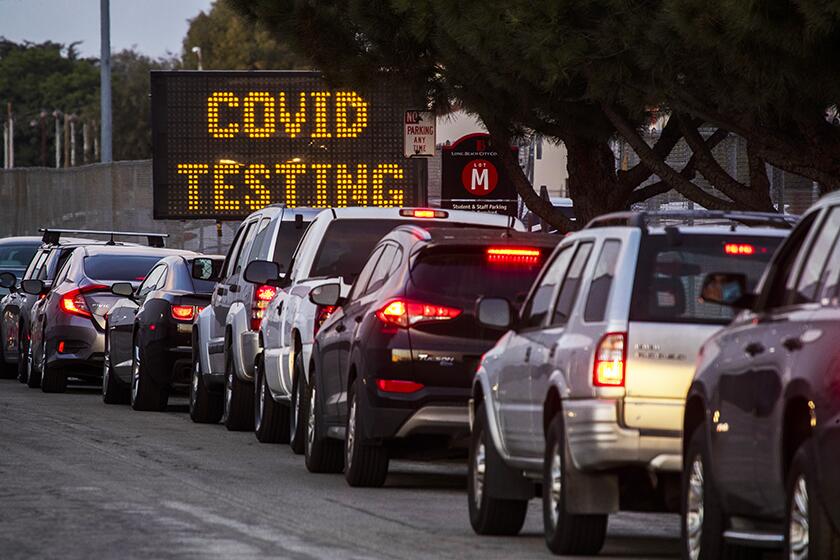
Editorial: The COVID-19 pandemic emergency is over, but virus is still here
It’s appropriate for the government to move out of the emergency response phase. But we must continue to be vigilant because the coronavirus that has killed millions over the last three years is still with us.
May 11, 2023
The fatality rate of COVID-19, after a steady decline, is now at a similar level with influenza, and there are enough medical resources to deal with a modest rise in infections, with about half of the country’s 700 hospital beds designated to treat serious cases currently vacant, Jee said.
She said officials would maintain preventive measures to protect vulnerable groups, including older people and people with medical conditions, and continue financial support to lower the costs of tests and hospitalizations for virus carriers.
“The risk of COVID-19 is not yet over, but considering the decline in cases, improved medical response capacities and high levels of immunity, we have reached a point where we need to step out of an international emergency state and transition toward a long-term management phase ,” Jee said during a briefing.
The announcement came as health workers reported 20,574 new COVID-19 cases in South Korea on Thursday, which represented a slight increase from last week’s level. Lee Sang-won, the Korea Disease Control and Prevention Agency’s chief of epidemiological investigations, said the pace of the country’s coronavirus infections has moderately increased in recent weeks because of the spread of XBB, a new Omicron variant. He said it was unlikely that the spread would develop into another huge wave of the virus.
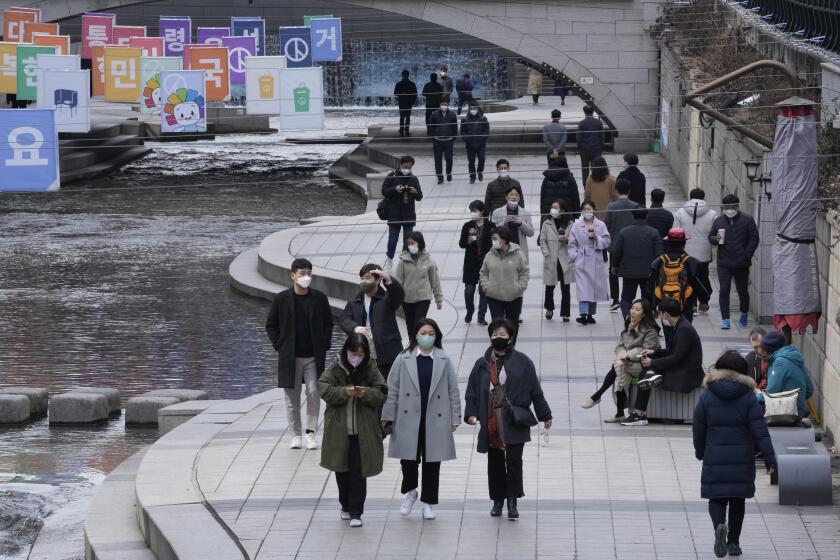
World & Nation
South Korea drops vaccination proof for indoor spaces despite Omicron surge
The elimination of proof of vaccination for entry to indoor spaces comes as South Korea sets a new one-day record for COVID-19 deaths.
Feb. 28, 2022
There are concerns that the lifting of the quarantine mandate will result in people showing up to work when sick , considering the country’s notoriously harsh work culture.
Lim Sook-young, another the Korea Disease Control and Prevention Agency official, said the government, for the time being, would continue to provide subsidies to COVID-19 patients in low-income brackets and to small companies when they offer paid leave to sick employees, so that infected people can be encouraged to isolate and recover.
She said government agencies were debating further plans to “institutionalize a culture of resting when sick,” including pushing employers to establish consistent guidelines over paid and sick leave and provide employees expanded options for working at home.
South Korea had maintained a stringent COVID-19 response based on aggressive testing, contact-tracing and quarantines during the earlier part of the pandemic, but has eased most of its virus controls since last year as the Omicron variant’s surge rendered those containment strategies irrelevant.
The WHO declared an end to the COVID-19 emergency last week, though Director-General Tedros Adhanom Ghebreyesus noted that the viral disease remained a global health threat.
More to Read
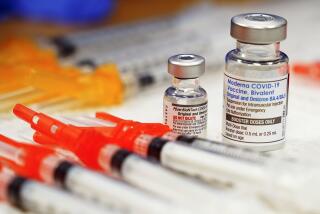
US to lift most federal COVID-19 vaccine mandates next week
May 1, 2023
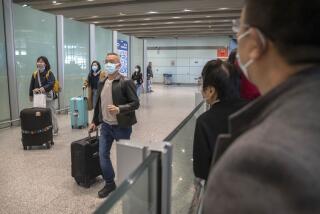
China to scrap PCR test requirement for inbound travelers starting Saturday
April 26, 2023
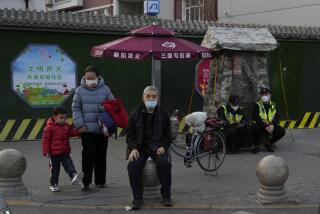
U.S. to relax COVID testing rules for travelers from China as early as Friday
March 8, 2023
Start your day right
Sign up for Essential California for news, features and recommendations from the L.A. Times and beyond in your inbox six days a week.
You may occasionally receive promotional content from the Los Angeles Times.
More From the Los Angeles Times

Newsom has approved three California prison closures but resists pressure to shutter more
April 1, 2024

Housing & Homelessness
Need help with missed mortgage payments in California? Apply soon: Money is running out
March 27, 2024
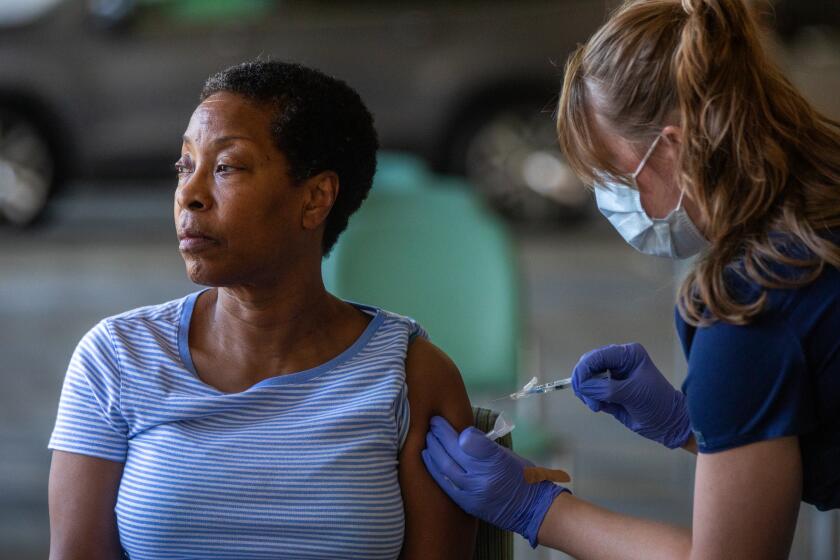
Older Californians now eligible for another COVID-19 vaccine dose
March 13, 2024
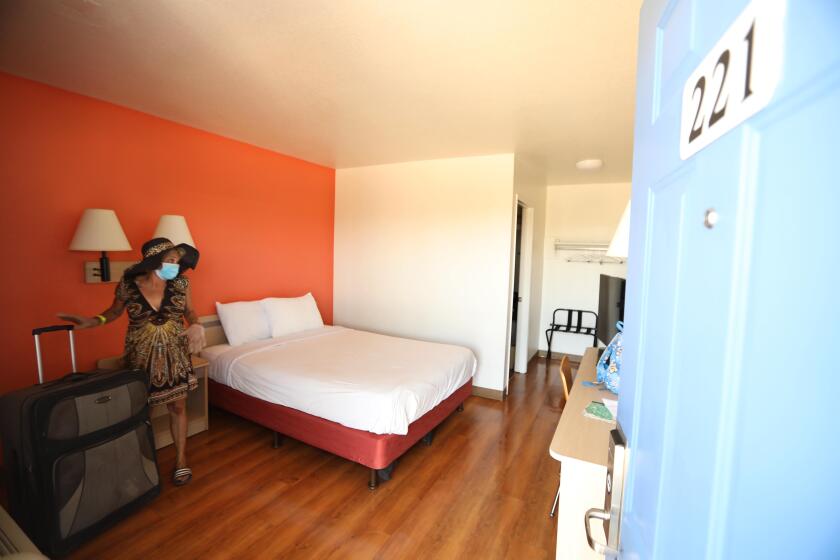
Feds won’t reimburse California $300 million for homeless housing amid COVID. Congress wants answers
March 12, 2024

IMAGES
VIDEO
COMMENTS
In need of travel insurance for South Korea? Learn about coverage options, get free quotes, compare providers & easily purchase a plan online. 800-487-4722. Products & Providers . ... COVID-19 Coverage for South Korea. Coverage related to COVID-19 treatment and more may be included in some travel insurance plans, but this will vary from ...
The costs for a South Korea travel insurance policy can vary. Factors in calculating the price include the length of the trip, the age of the person or people being covered, and the type of policy you desire. ... COVID-19, and hepatitis A and B. How to Bring Medications to South Korea. If you regularly take any prescription or over-the-counter ...
Travel during daylight hours only, especially in rural areas. If you choose to drive a vehicle in South Korea, learn the local traffic laws and have the proper paperwork. Get any driving permits and insurance you may need. Get an International Driving Permit (IDP). Carry the IDP and a US-issued driver's license at all times.
Here are a few of the many factors influencing the scope and cost of travel insurances for South Korea: 👥 Number of Visitors. Around 17 million /year. Travel Highlight. Korean barbecue. 💸 Healthcare Cost. 50th globally (above average) 🩺 Healthcare Quality. Very good.
Enroll in the Smart Traveler Enrollment Program (STEP) to receive security messages and make it easier to locate you in an emergency. Call us in Washington, D.C. at 1-888-407-4747 (toll-free in the United States and Canada) or 1-202-501-4444 (from all other countries) from 8:00 a.m. to 8:00 p.m., Eastern Standard Time, Monday through Friday ...
While travel insurance policies may offer very generous coverage of overseas medical expenses, Covid-19 treatment is usually a much smaller amount. For example, AXA SmartTraveller offers up to ...
Travellers will also need to buy travel insurance with a minimum coverage of 30 million won for Covid-19 related medical expenses, and carry a hard copy of the insurance policy.
You should check the Korea Disease Control and Prevention Agency directly for updates. Although COVID-19 testing is not required for entry into Korea, a non-comprehensive list of some COVID-19 testing facilities in Korea can be found on the Embassy website should travelers seek or require testing for travel to other countries.
We also offer a range of benefits, some of which include: Medical expenses and hospital benefit. Personal accident and liability. Cancelling and cutting short your holiday. Abandoning your trip. Delayed departure. Accommodation cover. Personal belongings and baggage. Personal money, passport and travel documents.
Yes - most travel insurance policies cover any COVID-19-related expenses, such as medical treatment while you're in South Korea and the need to cancel your holiday if you test positive before you leave. However, cancellation due to COVID-19 isn't usually available on basic policies.
COVID-19 healthcare in South Korea If you think you might have COVID-19 while in South Korea, contact the Korea Disease Control and Prevention Agency on 1339 (support is available in English).
FCDO travel advice for South Korea. Includes safety and security, insurance, entry requirements and legal differences. ... contact the South Korean Embassy in the UK. COVID-19 rules.
While purchasing travel insurance is not mandatory to enter South Korea anymore, it's still a good idea to keep yourself covered. We recommend purchasing travel insurance with a minimum coverage of ₩30,000,000 (US$25,284.47), which include COVID-19-related medical expenses.
FCDO travel advice for South Korea. Includes safety and security, insurance, entry requirements and legal differences.
South Korea deputy prime minister on plans to finance for extra budget this year. South Korea is looking to open up its economy and work on travel bubble programs given its relative success in ...
This is exactly what Tata AIG's Travel Insurance South Korea Plan encompasses. Here are the major benefits of the plan: Coverage against Baggage loss and delay. Hijack cover. Coverage against flight delay and cancellation. Personal Liability Cover. Coverage against the loss of passport. Coverage against theft.
Share of people buying travel insurance post-COVID South Korea 2022, by age. According to a survey conducted by Rakuten Insight in South Korea in July 2022, around 71 percent of respondents aged ...
You'll probably have to pay up-front. Ensure your travel insurance covers all medical costs. South Korea is popular for medical tourism. If you're travelling for a procedure, research and choose your medical service providers carefully. ... If you test positive for COVID-19 while in South Korea, local authorities recommend isolating for 5 days ...
Avoid walking alone, especially after dark. Ensure that your personal belongings, including your passport and other travel documents, are secure at all times. You can report crimes, including a sexual assault, to the Korean National Police Agency by dialling 112. This is a 24-hour, 7-day-a-week service.
South Korea tightens health insurance rules to curb foreign free riders A minimum six-month stay in Korea is now required for foreigners to qualify for health benefits
Travel Advisory. July 24, 2023. South Korea - Level 1: Exercise Normal Precautions. Reissued with obsolete COVID-19 page links removed. Exercise normal precautions in South Korea. Read the country information page for additional information on travel to South Korea. If you decide to travel to South Korea: Enroll in the Smart Traveler Enrollment ...
Visit the ROK COVID-19 portal. Visit our Embassy webpage on COVID-19 for information on conditions in Korea. Visit the Department of Homeland Security's website on the latest travel restrictions to the United States. Assistance: U.S. Embassy Seoul 188 Sejong Daero, Jongno-gu, Seoul +82-2-397-4114 [email protected]
SEOUL — South Korea will drop its COVID-19 quarantine requirements and end coronavirus testing recommendations for international arrivals starting next month after the World Health Organization ...
COVID-19 in South Korea Most countries worldwide present a risk of exposure to COVID-19. The risk of COVID-19, public health policy, and travel advice or restrictions may change quickly, therefore travellers should ensure they have access to up to date information on COVID-19 and be prepared for rapid changes in guidance both before and during ...